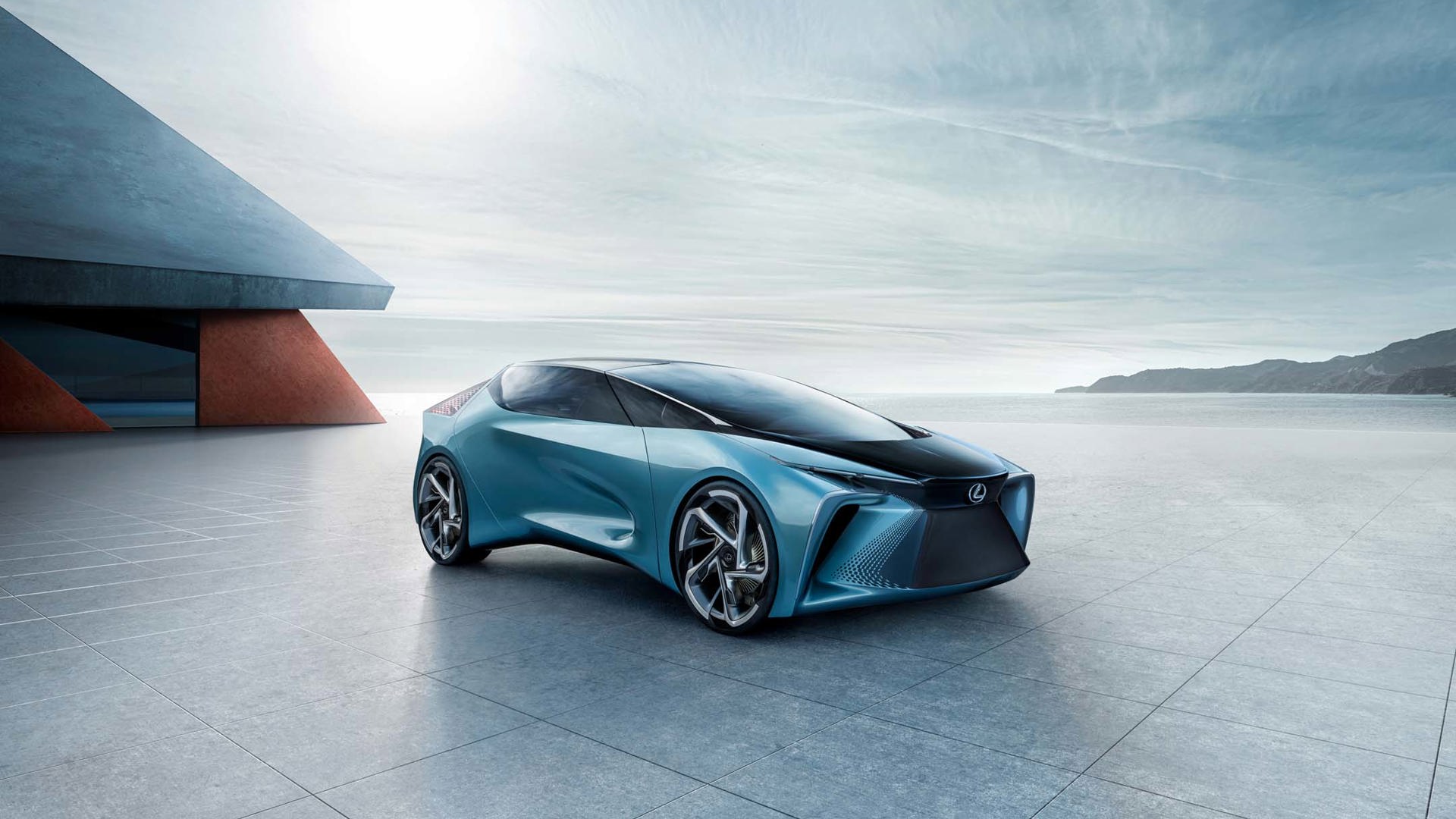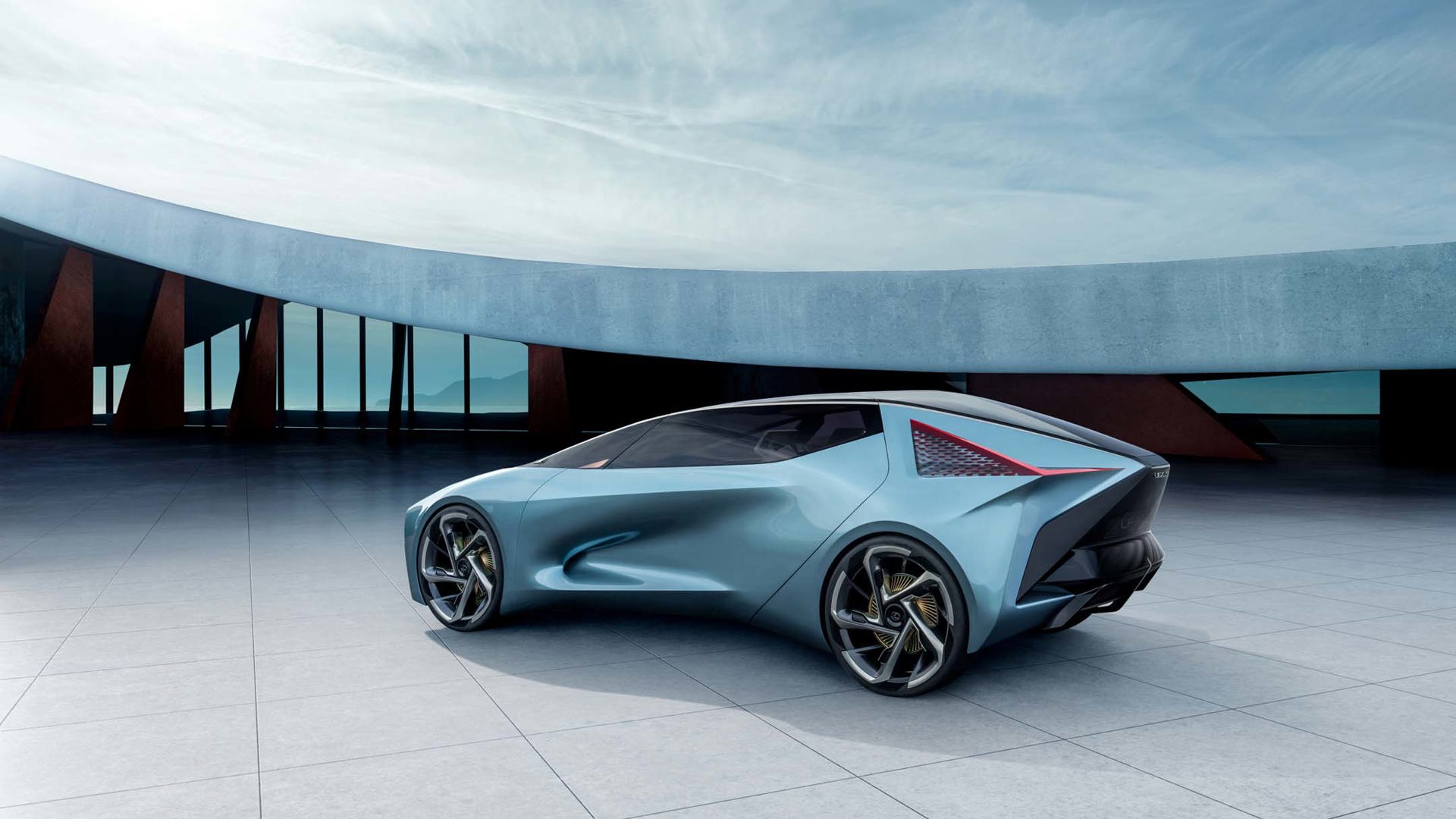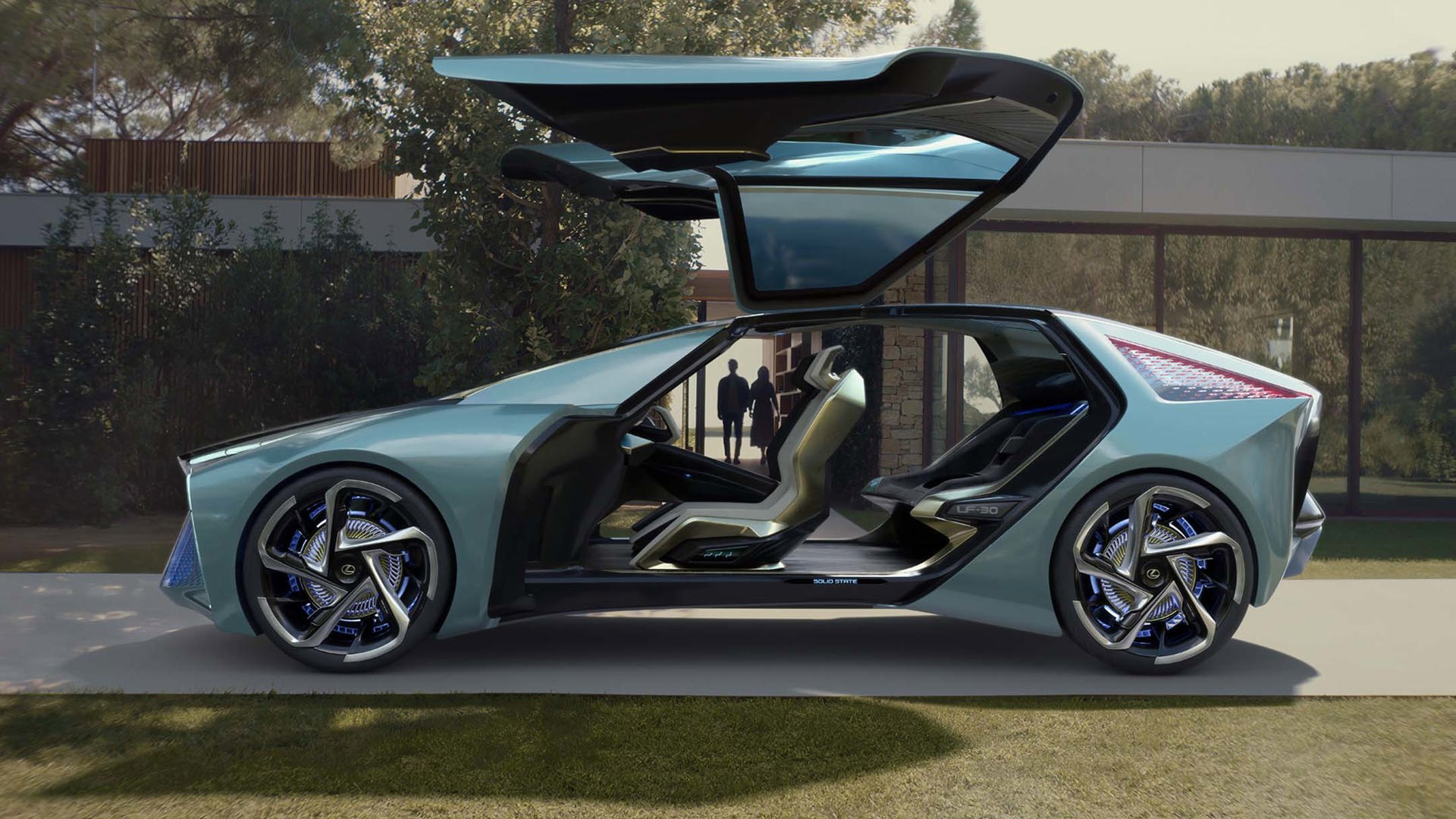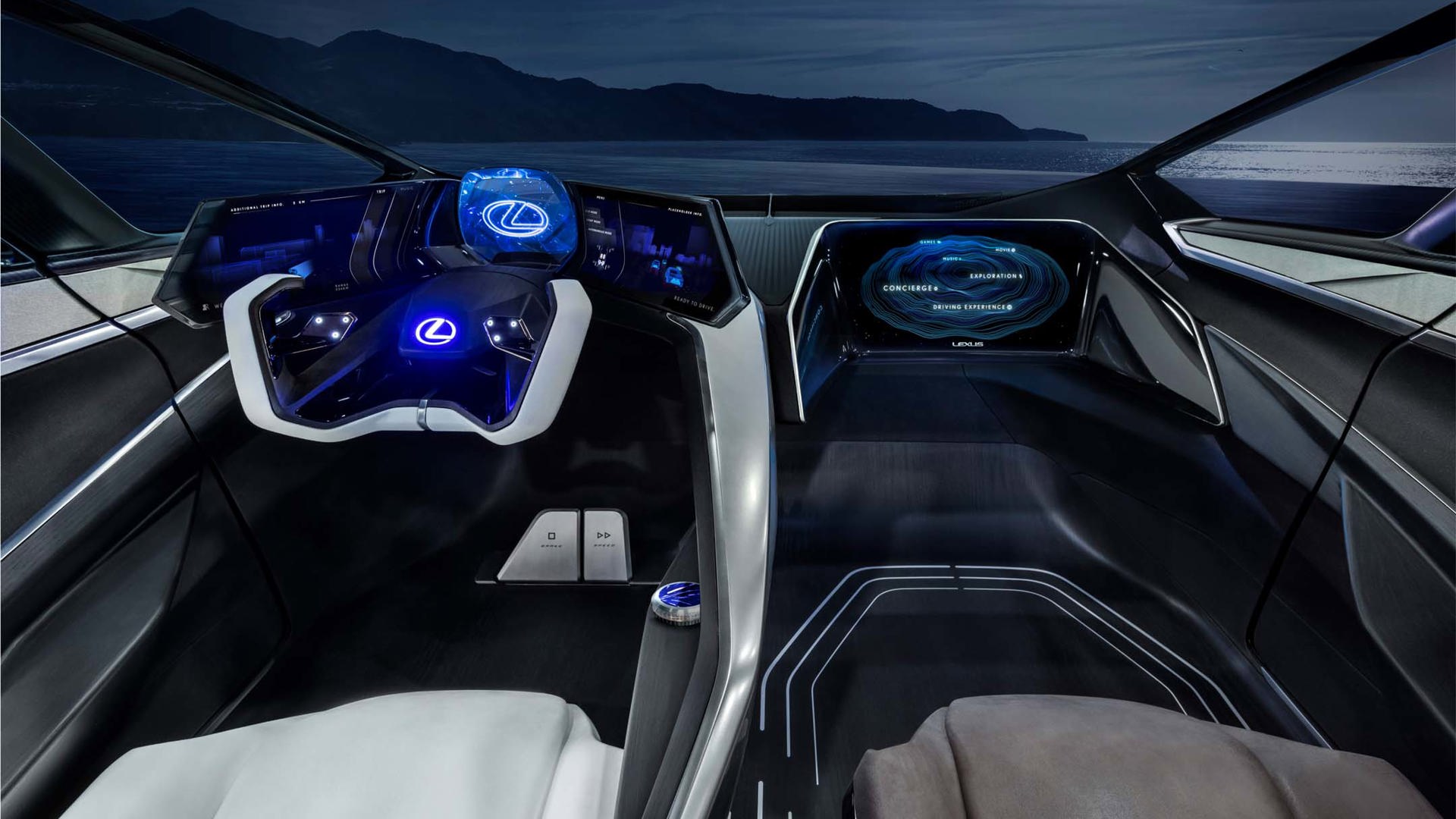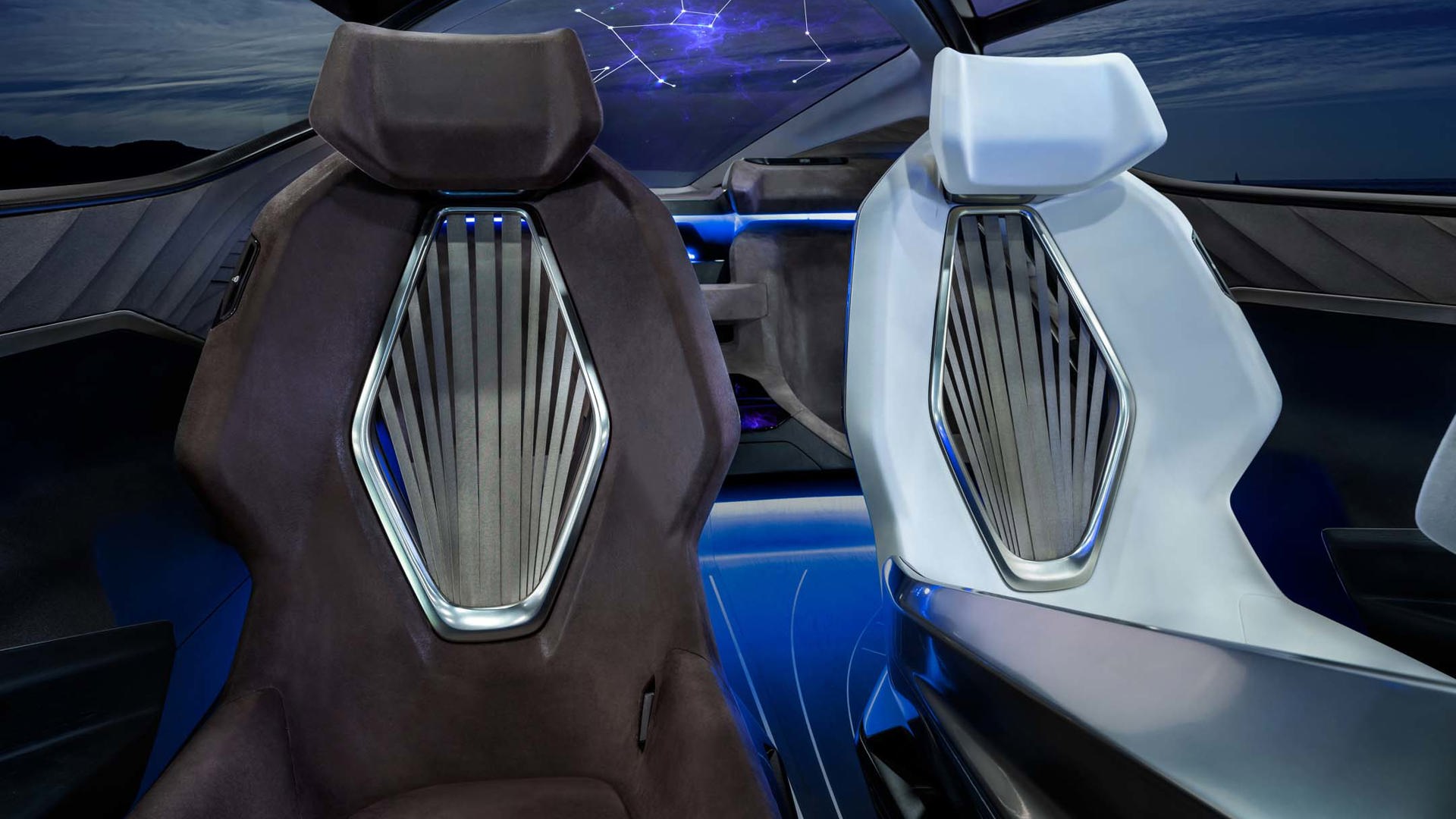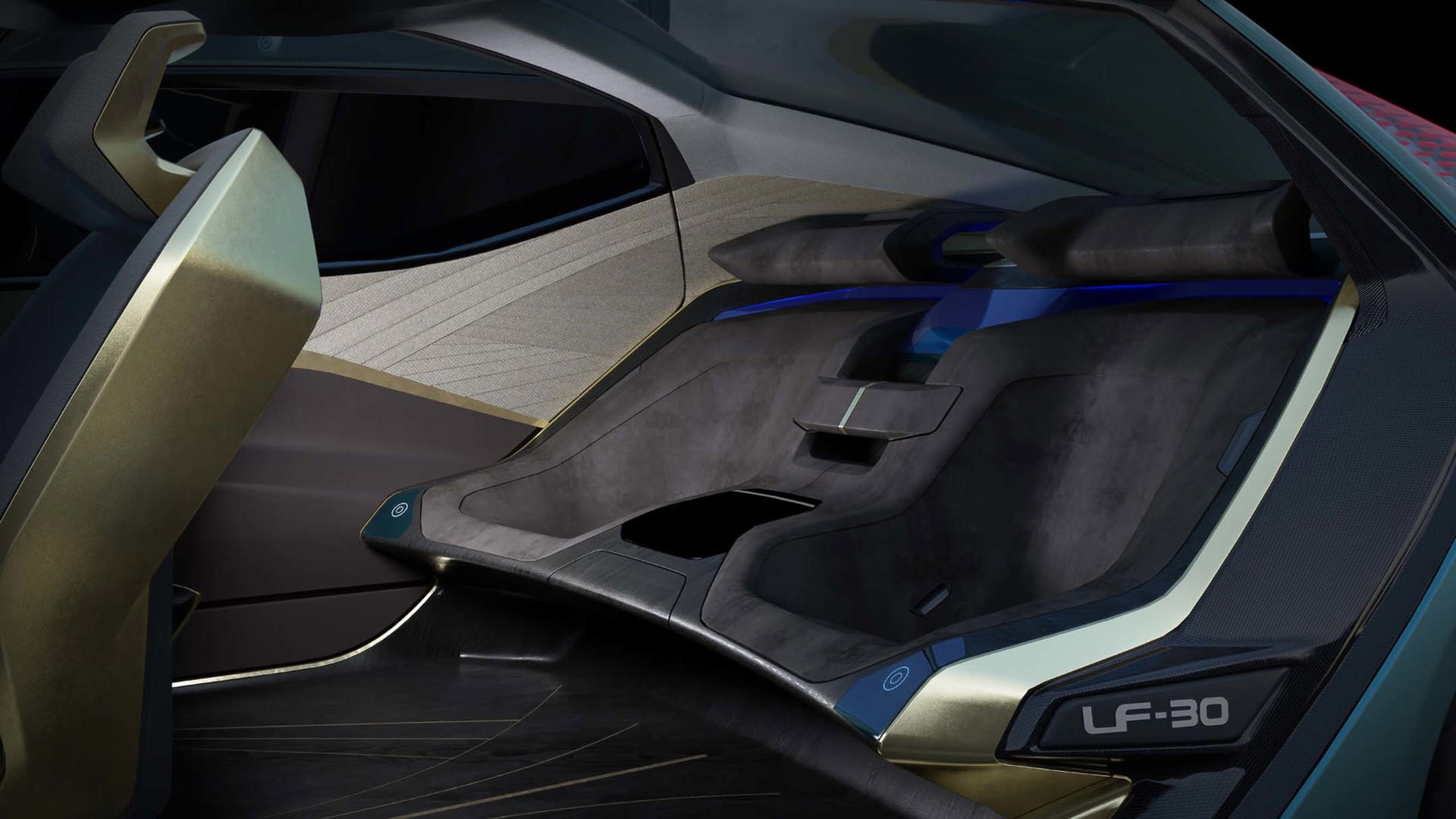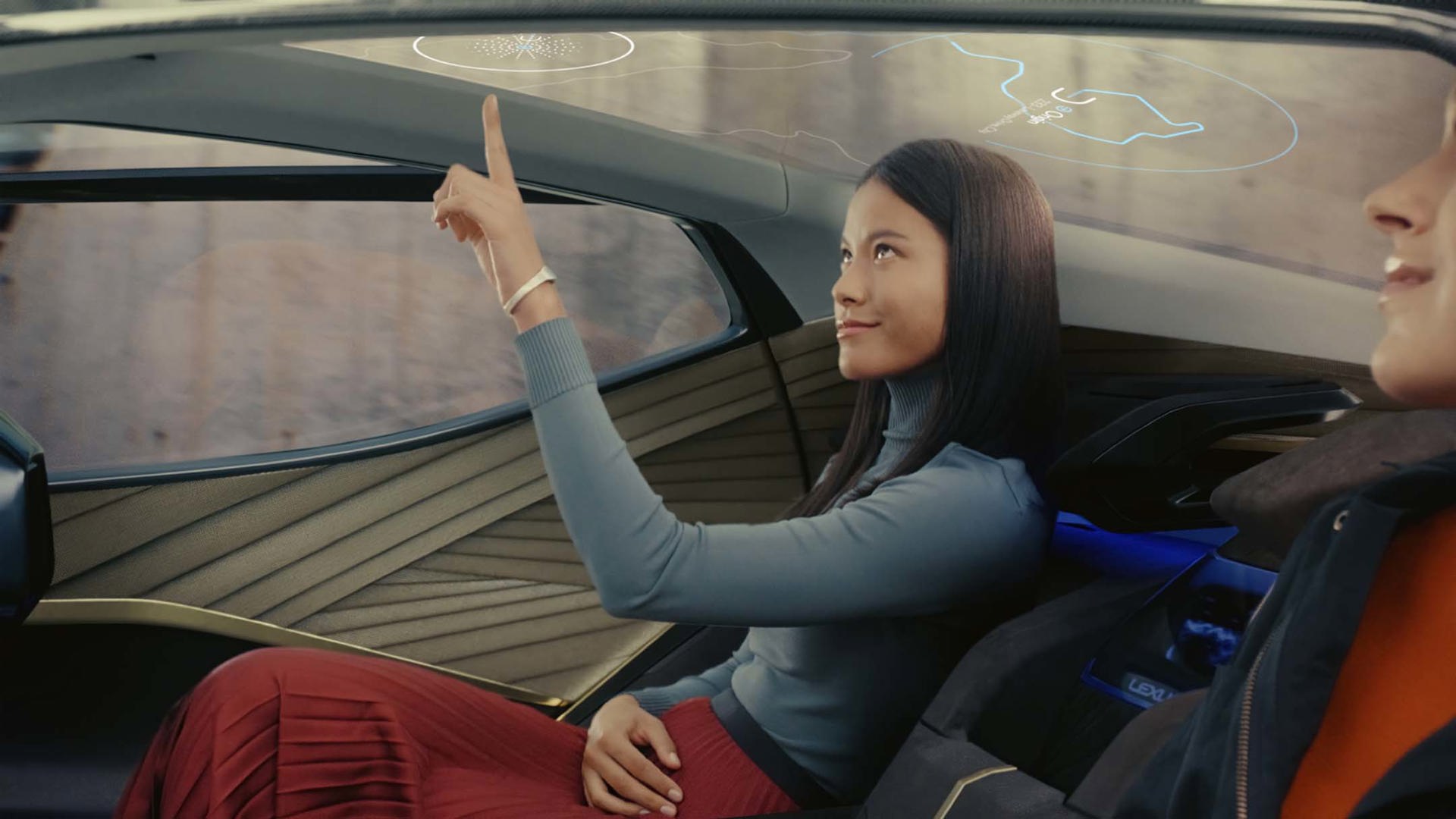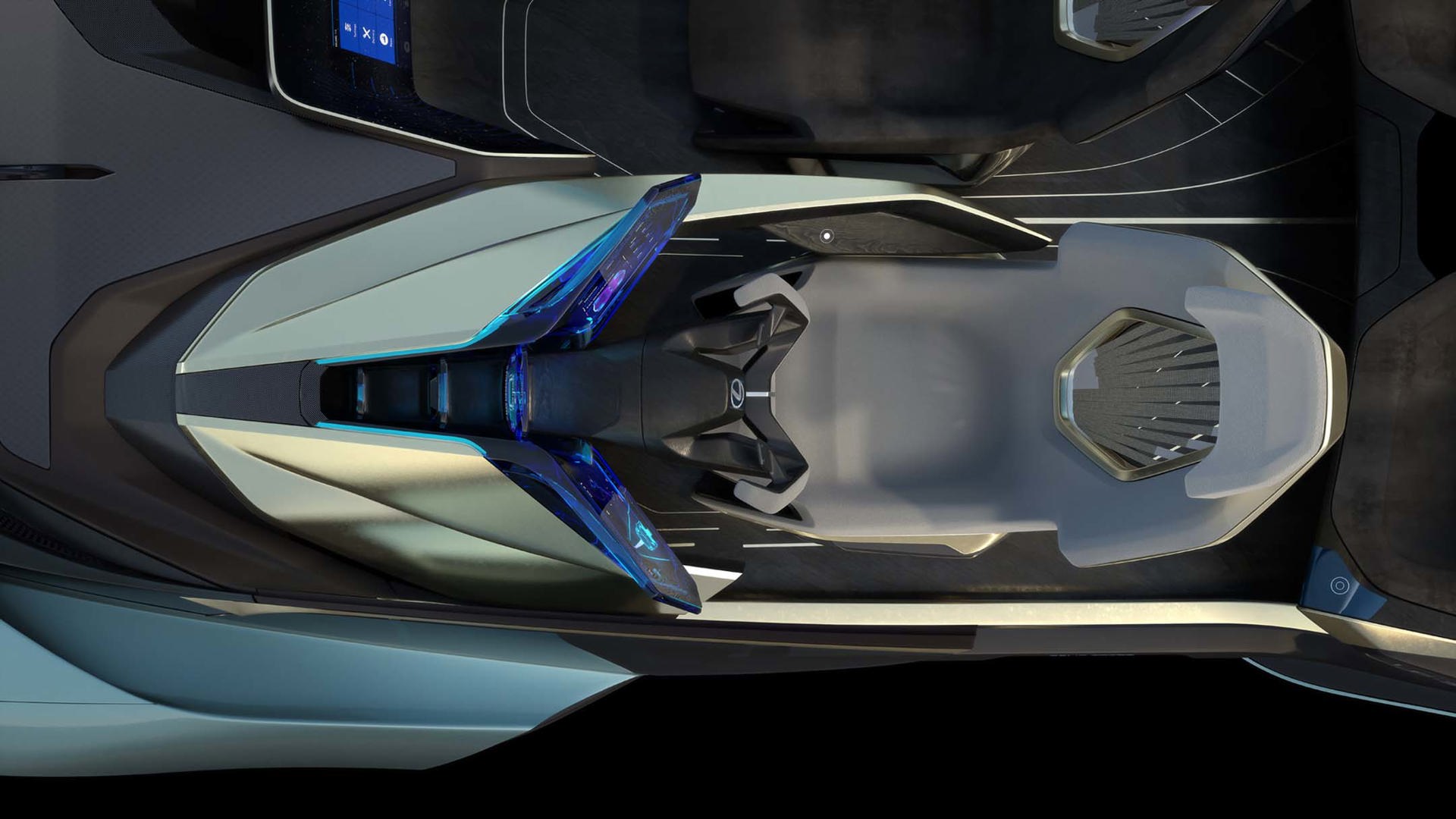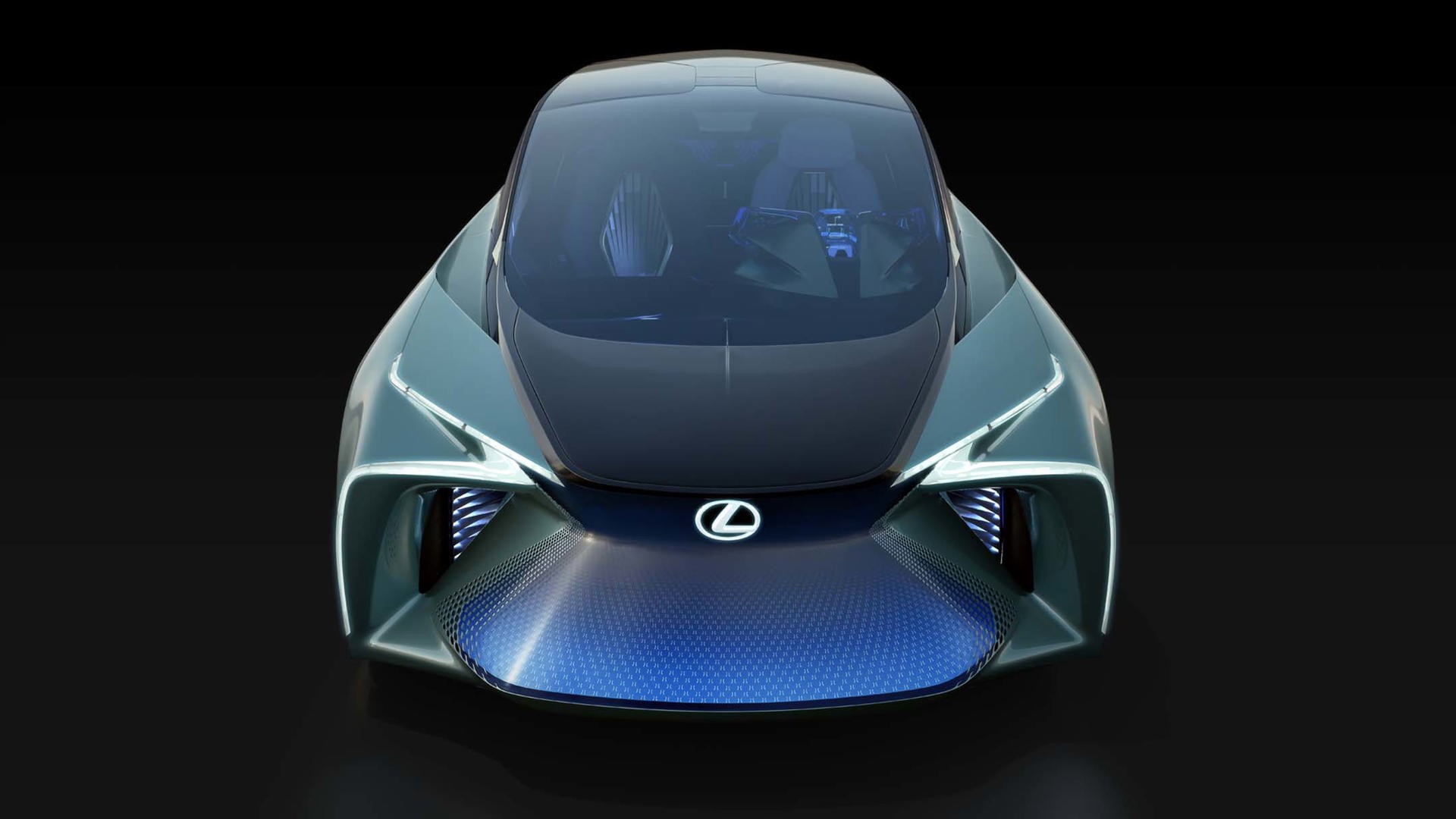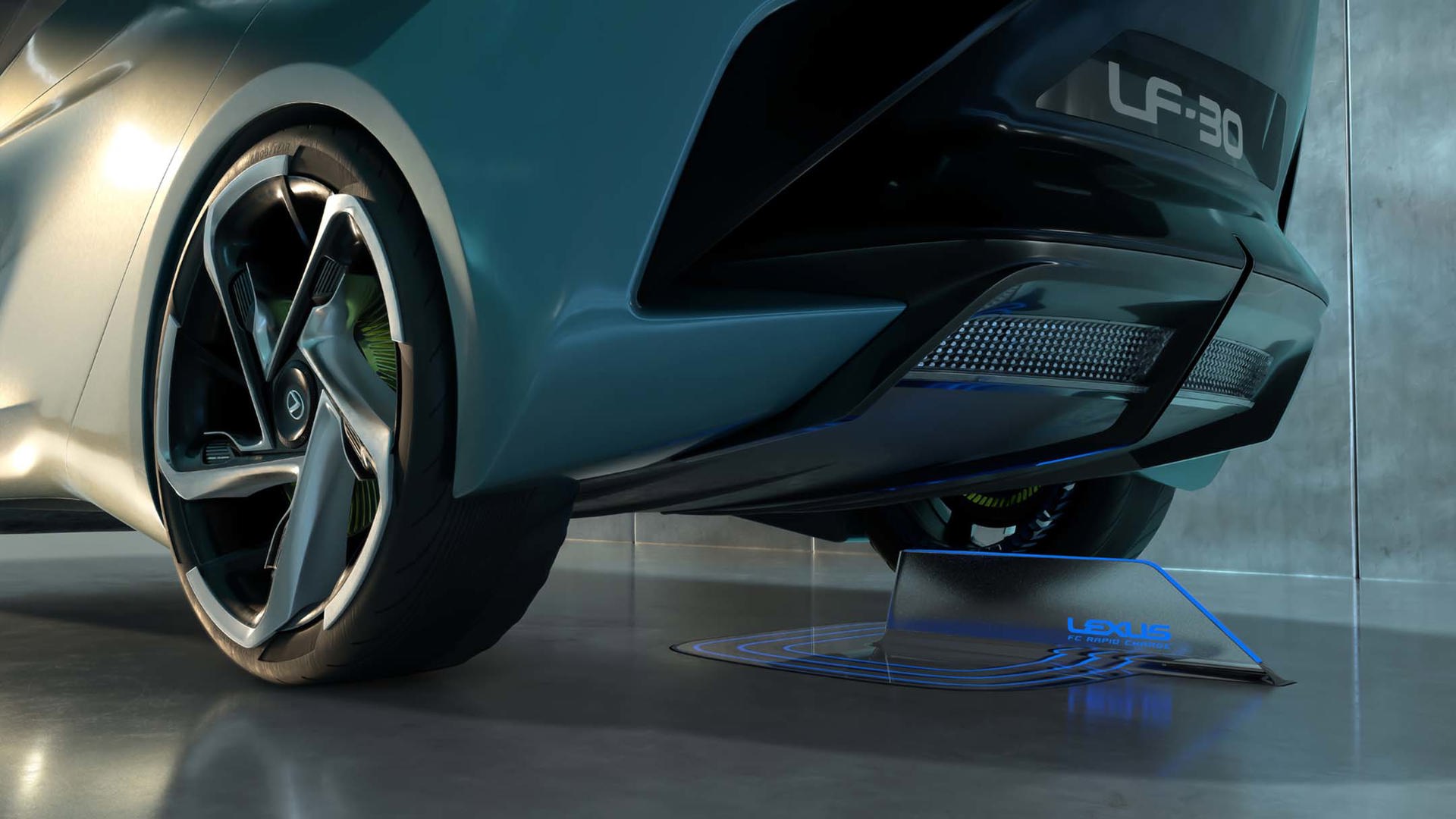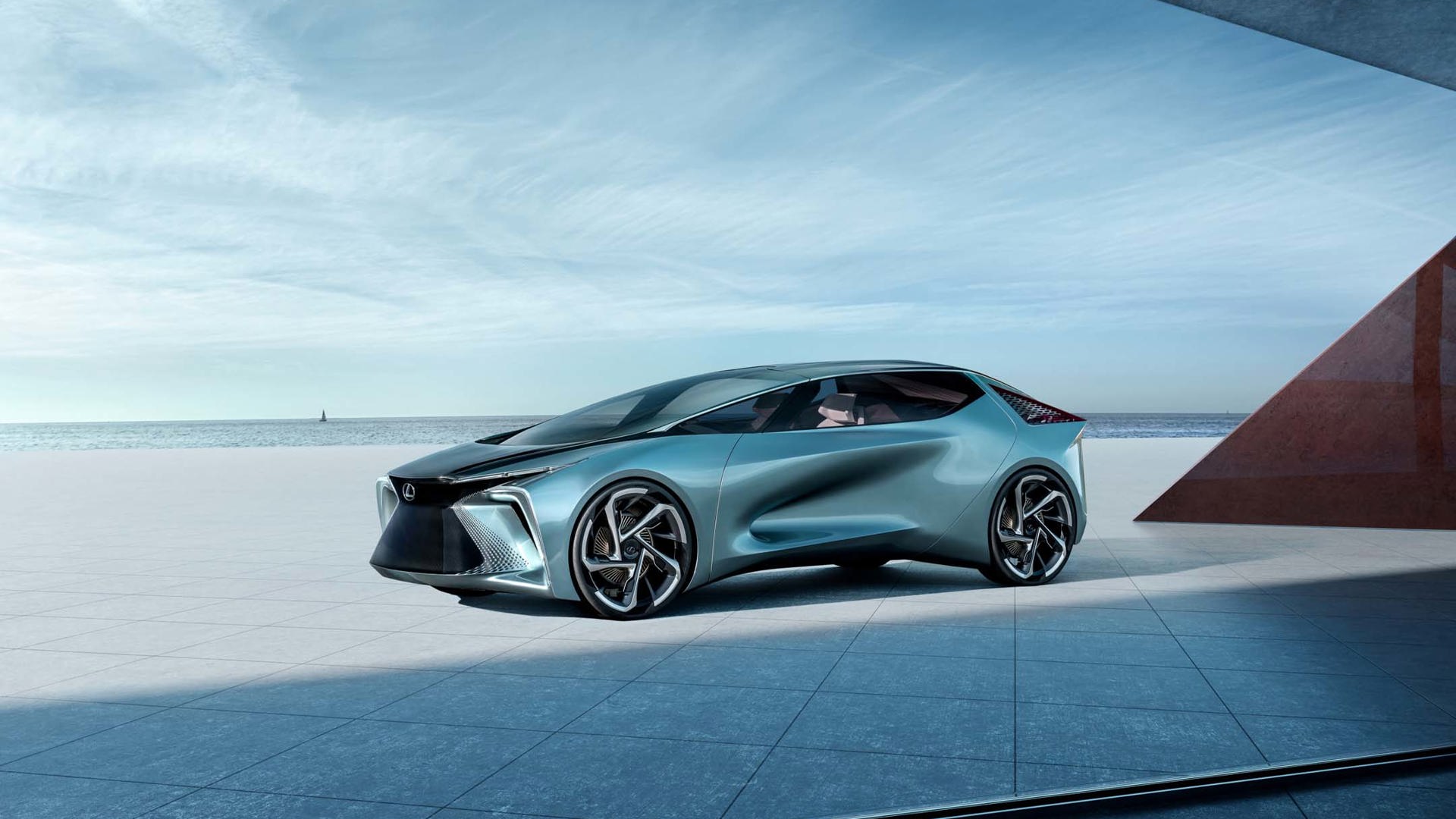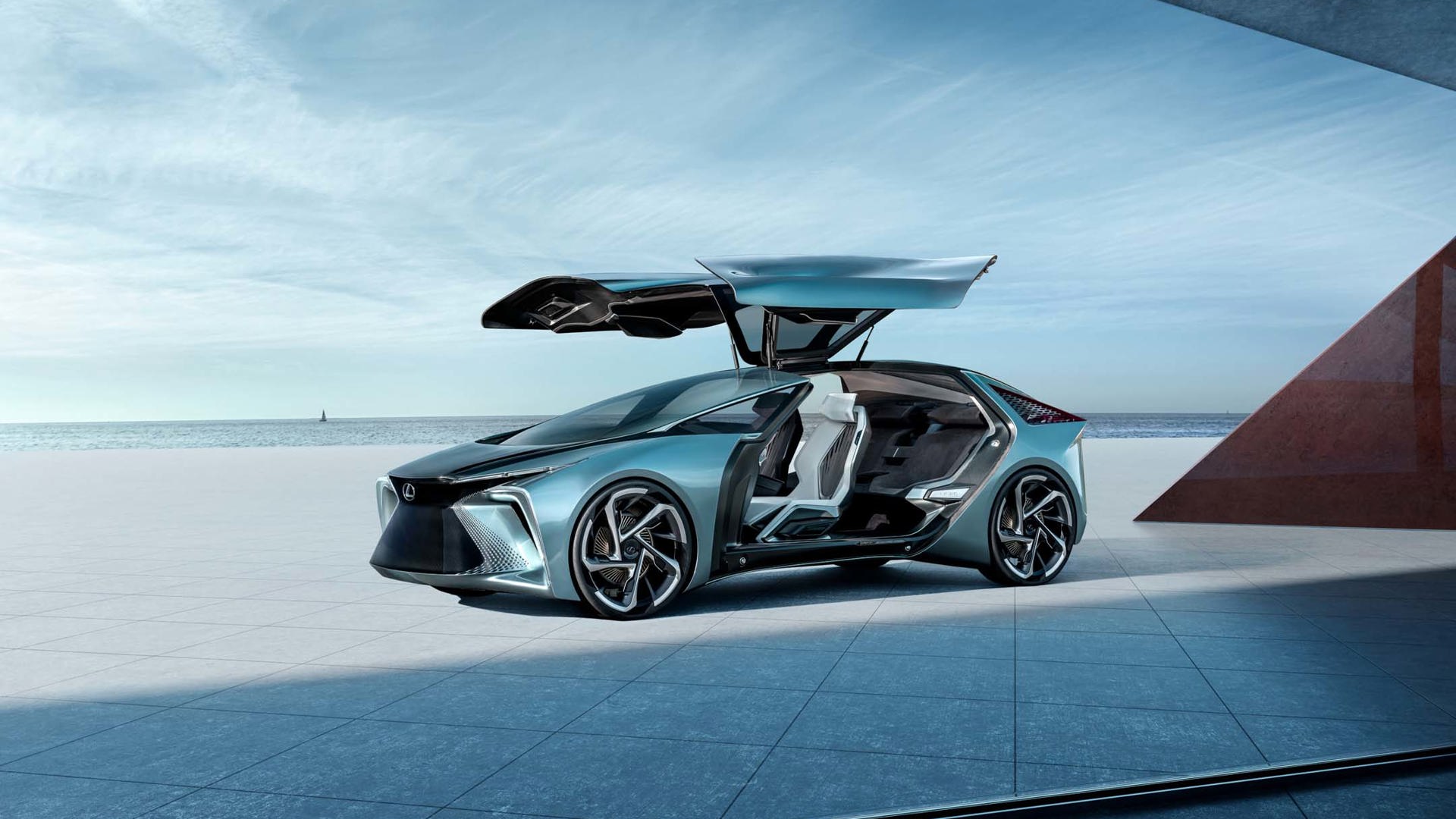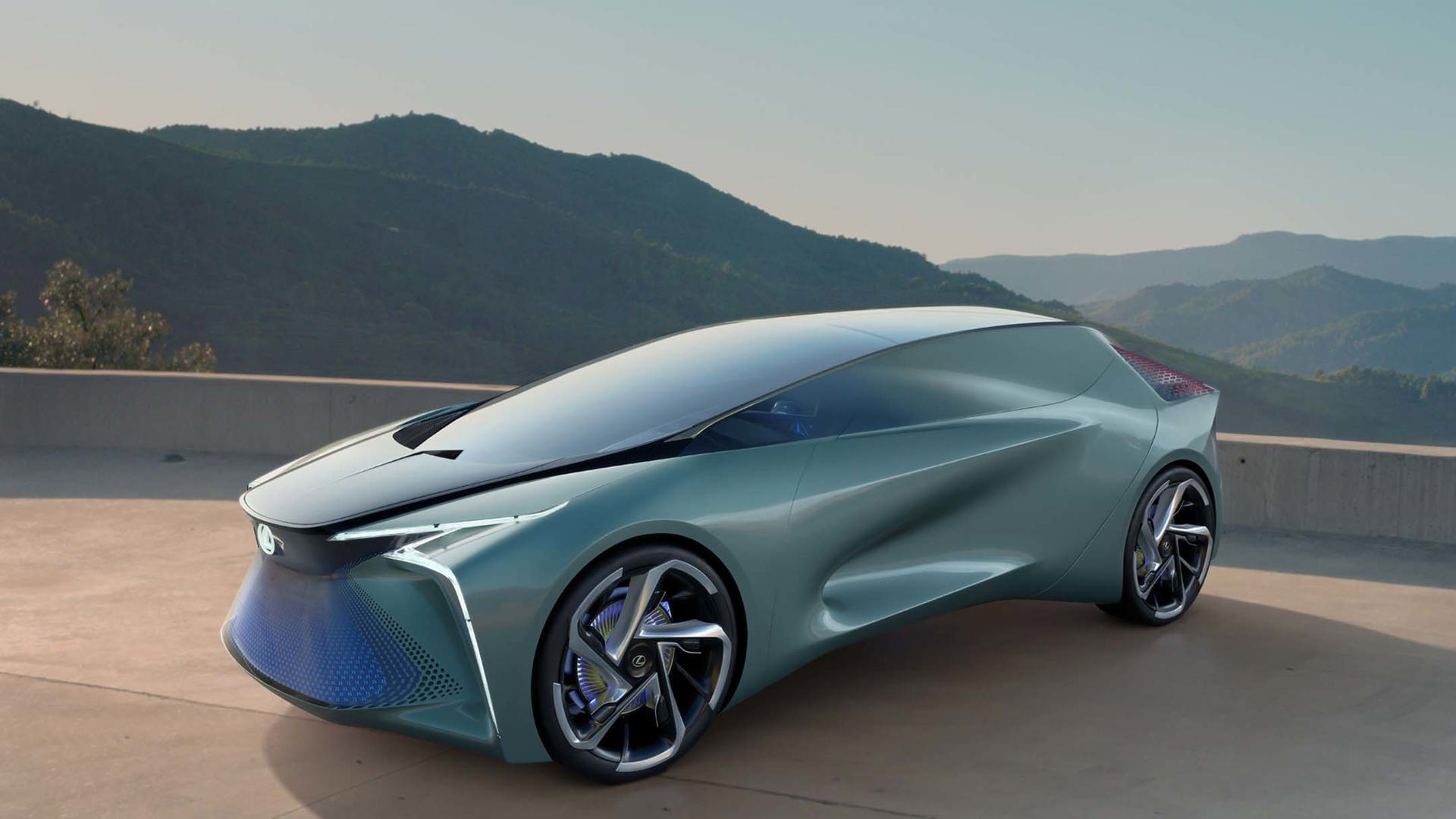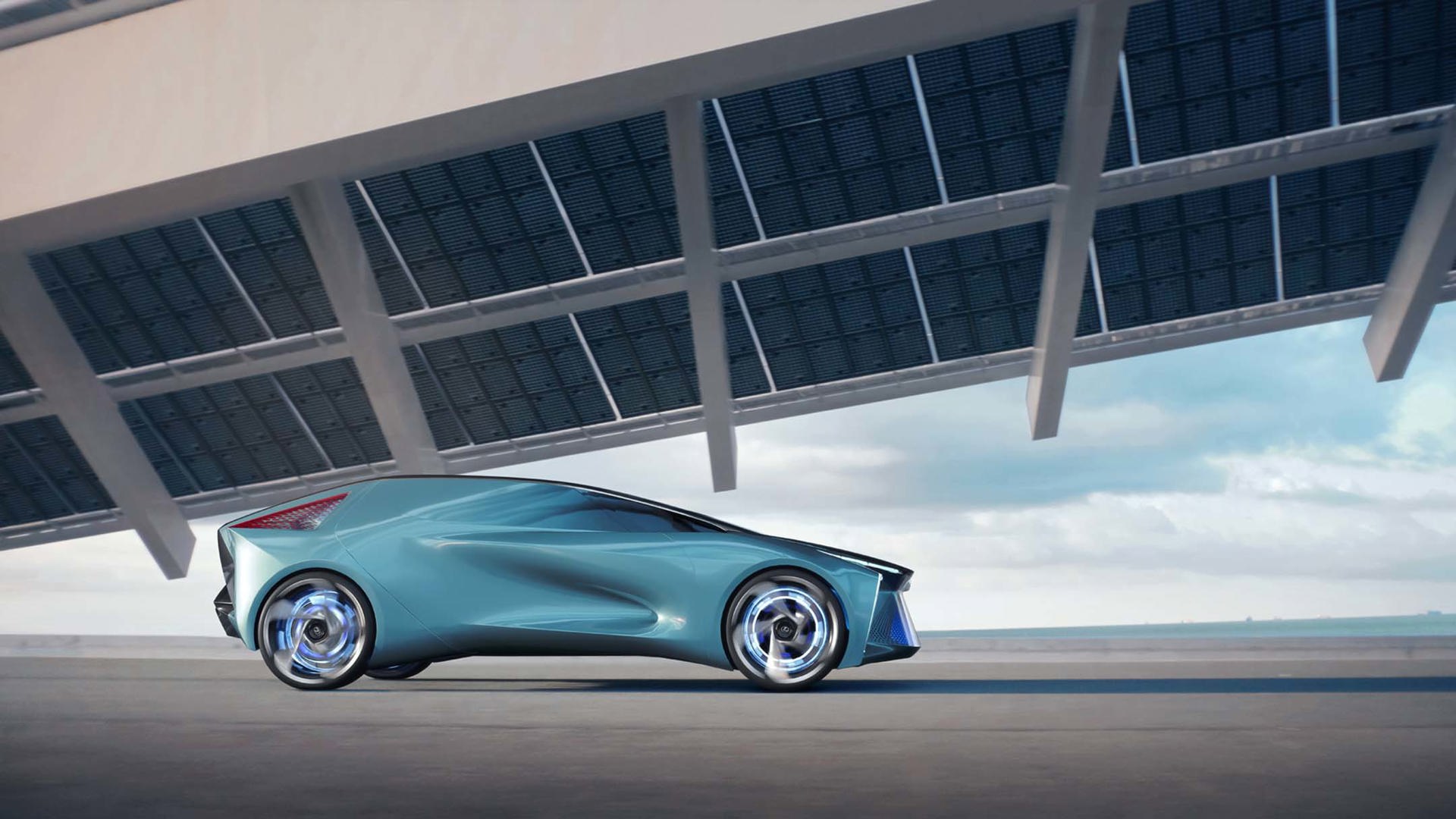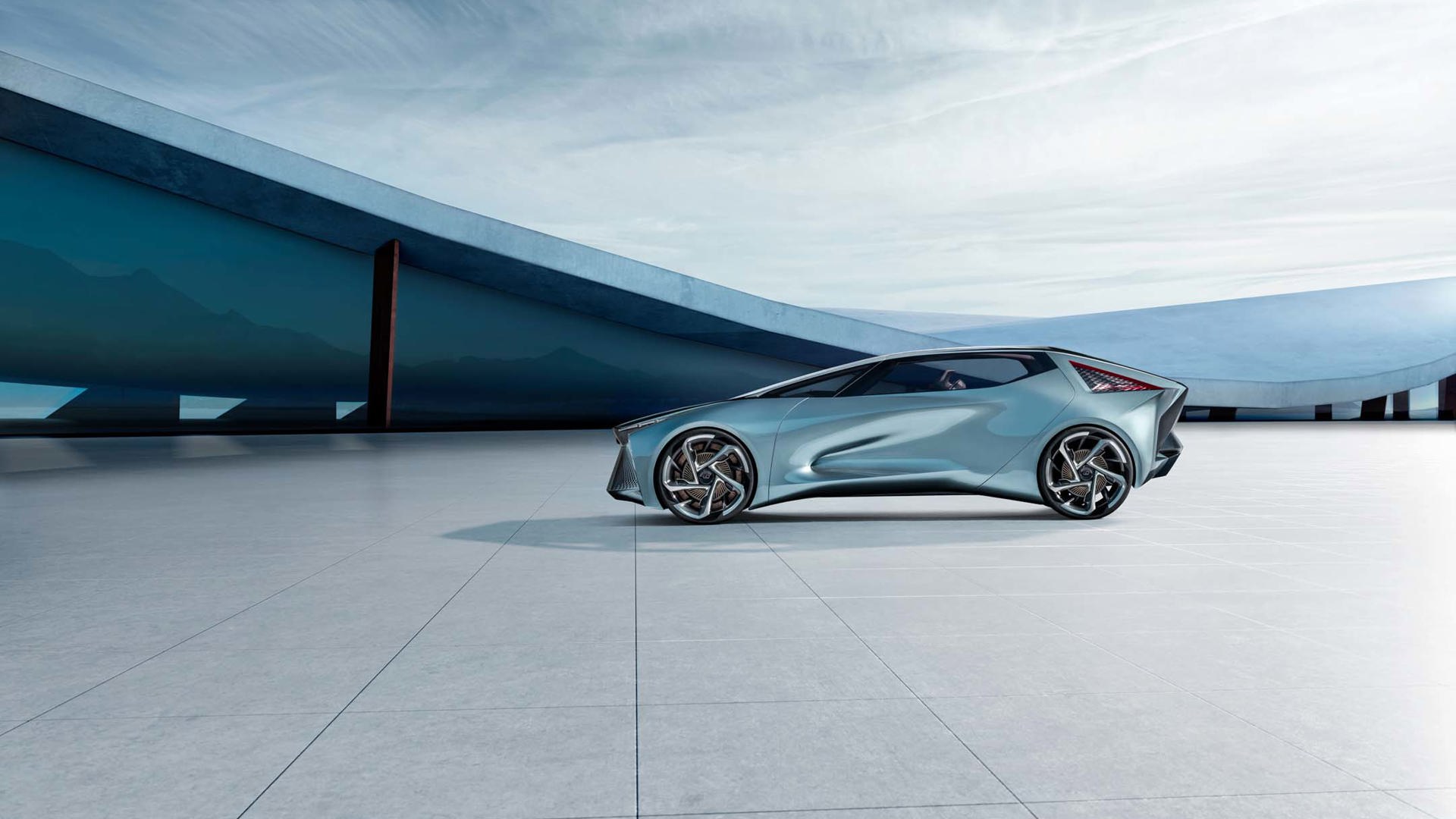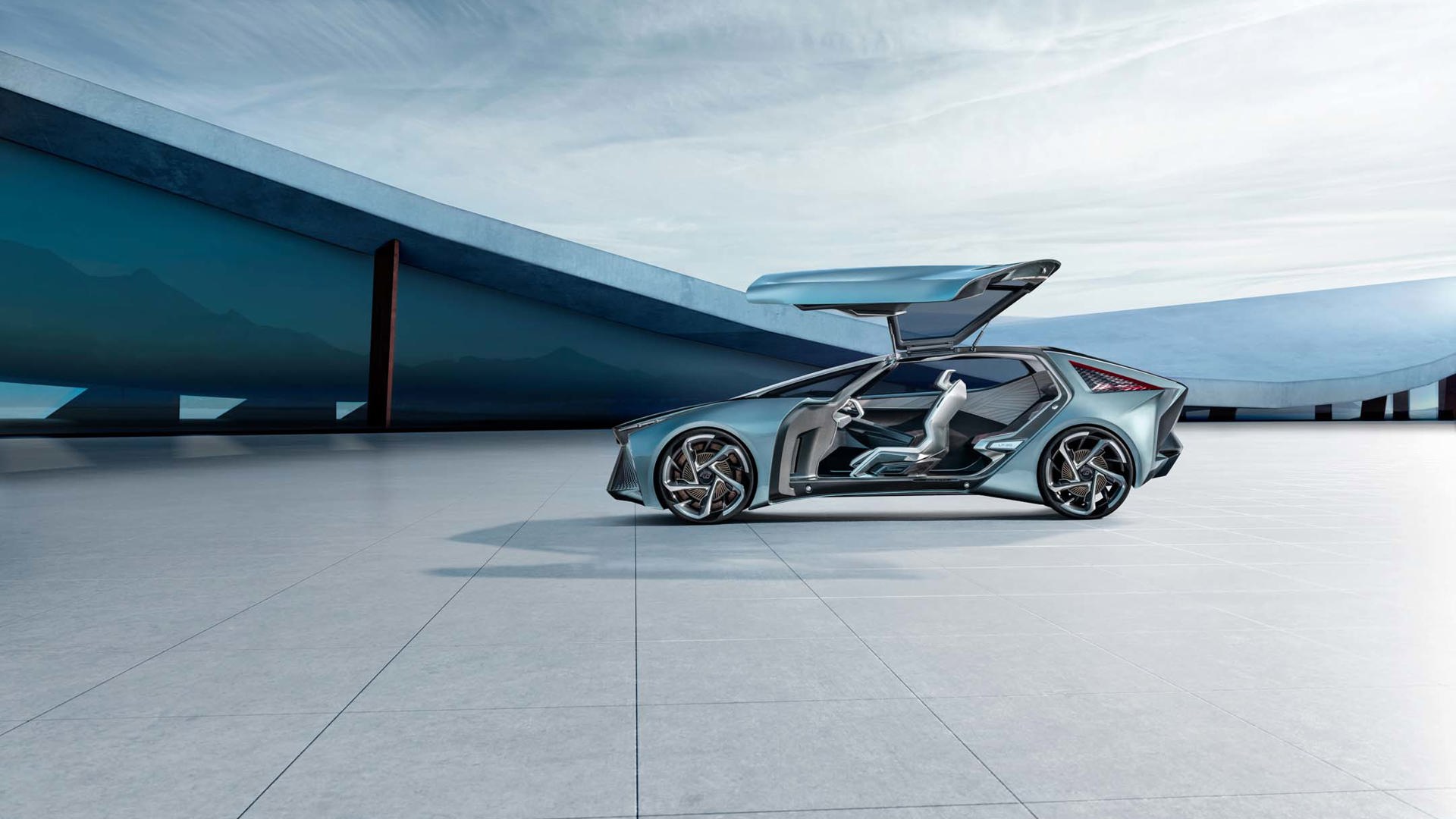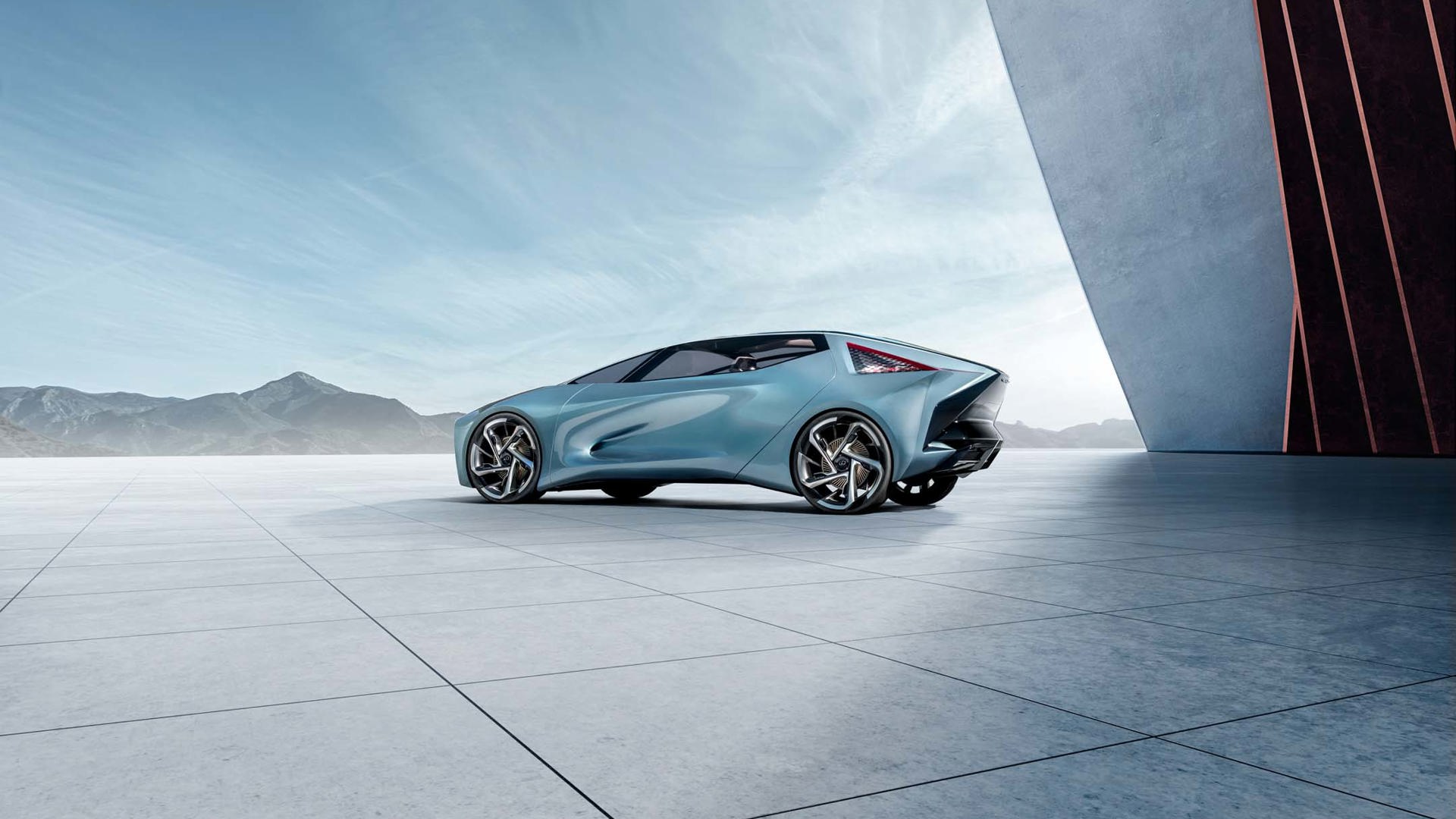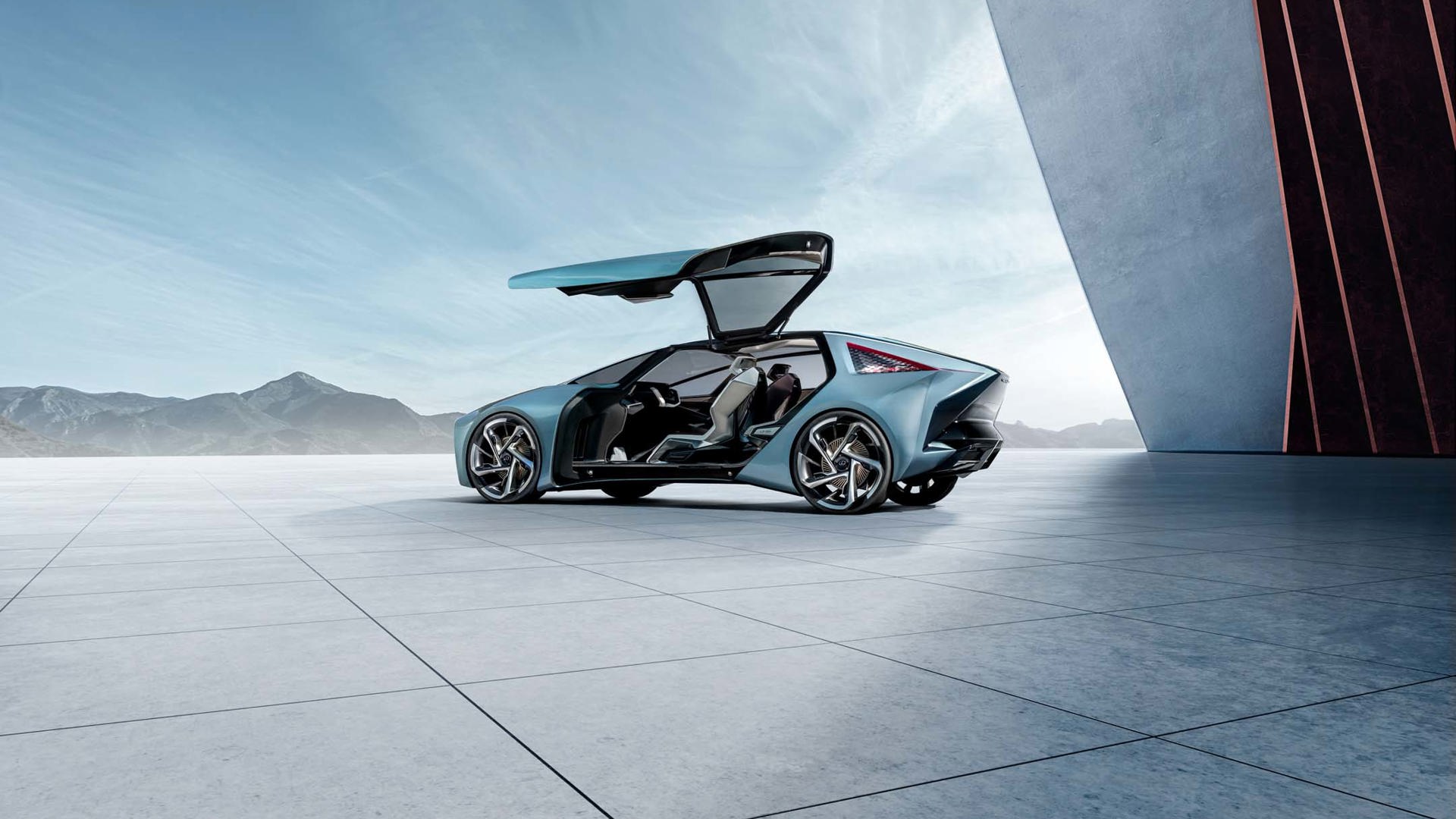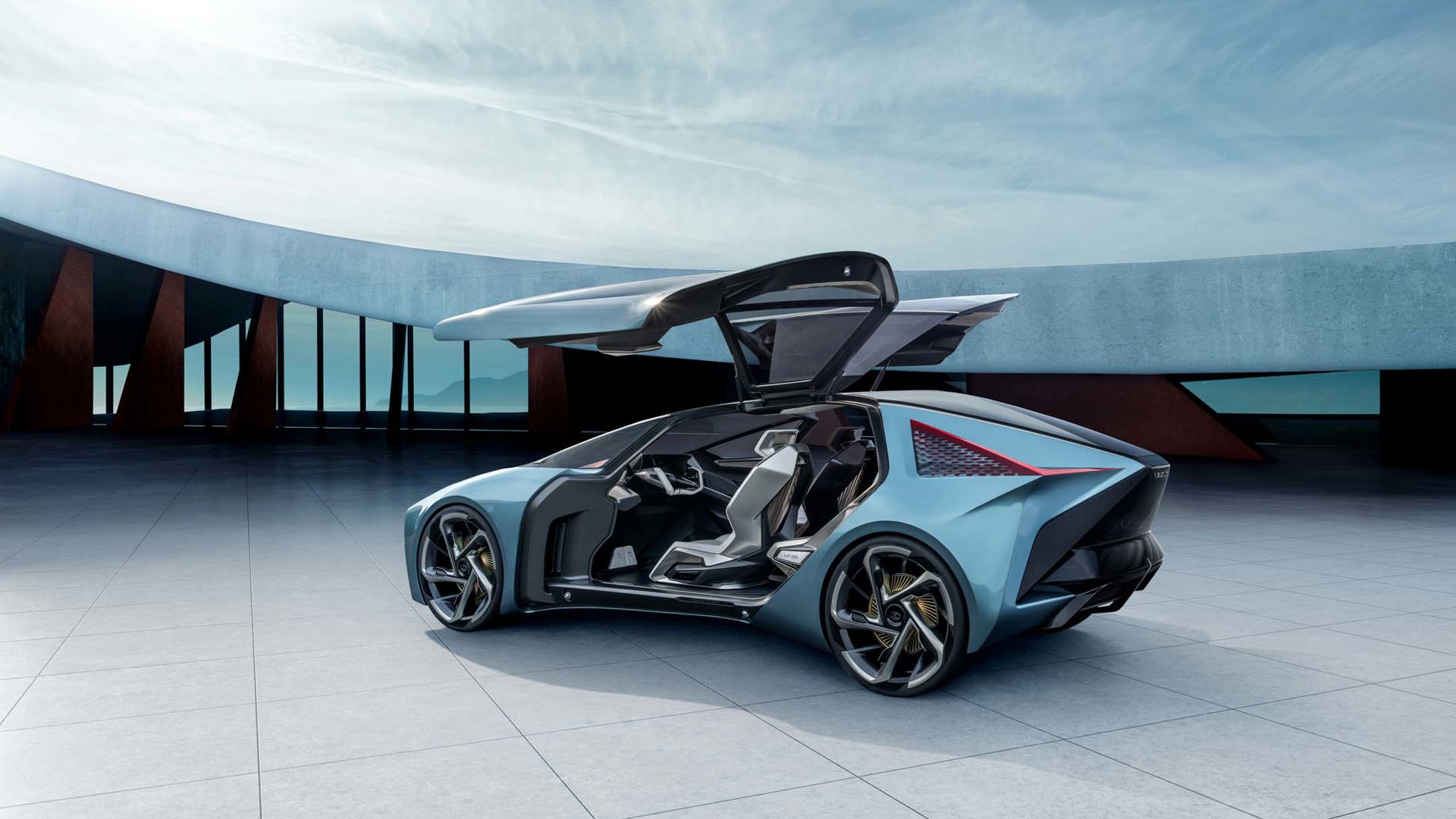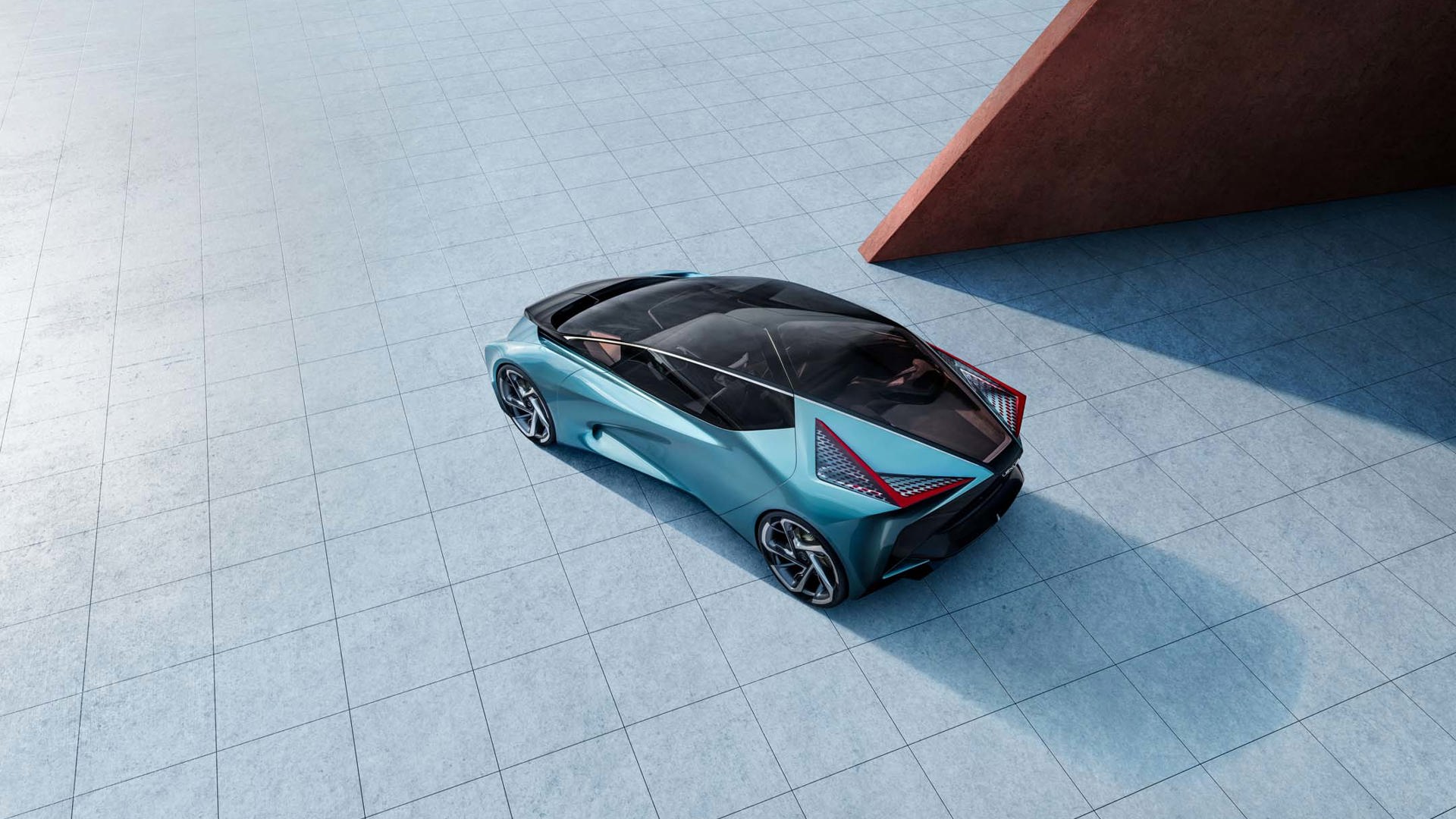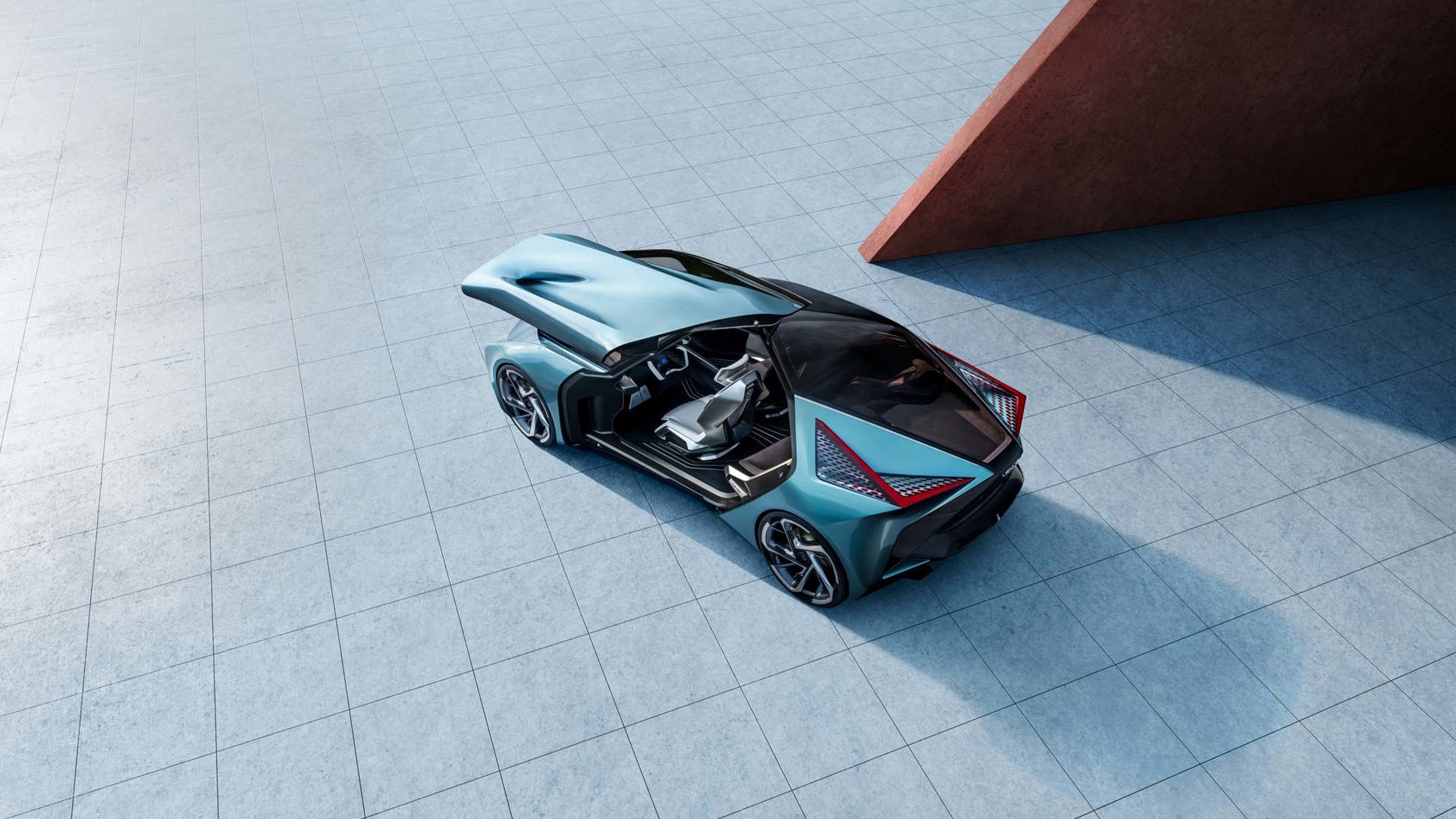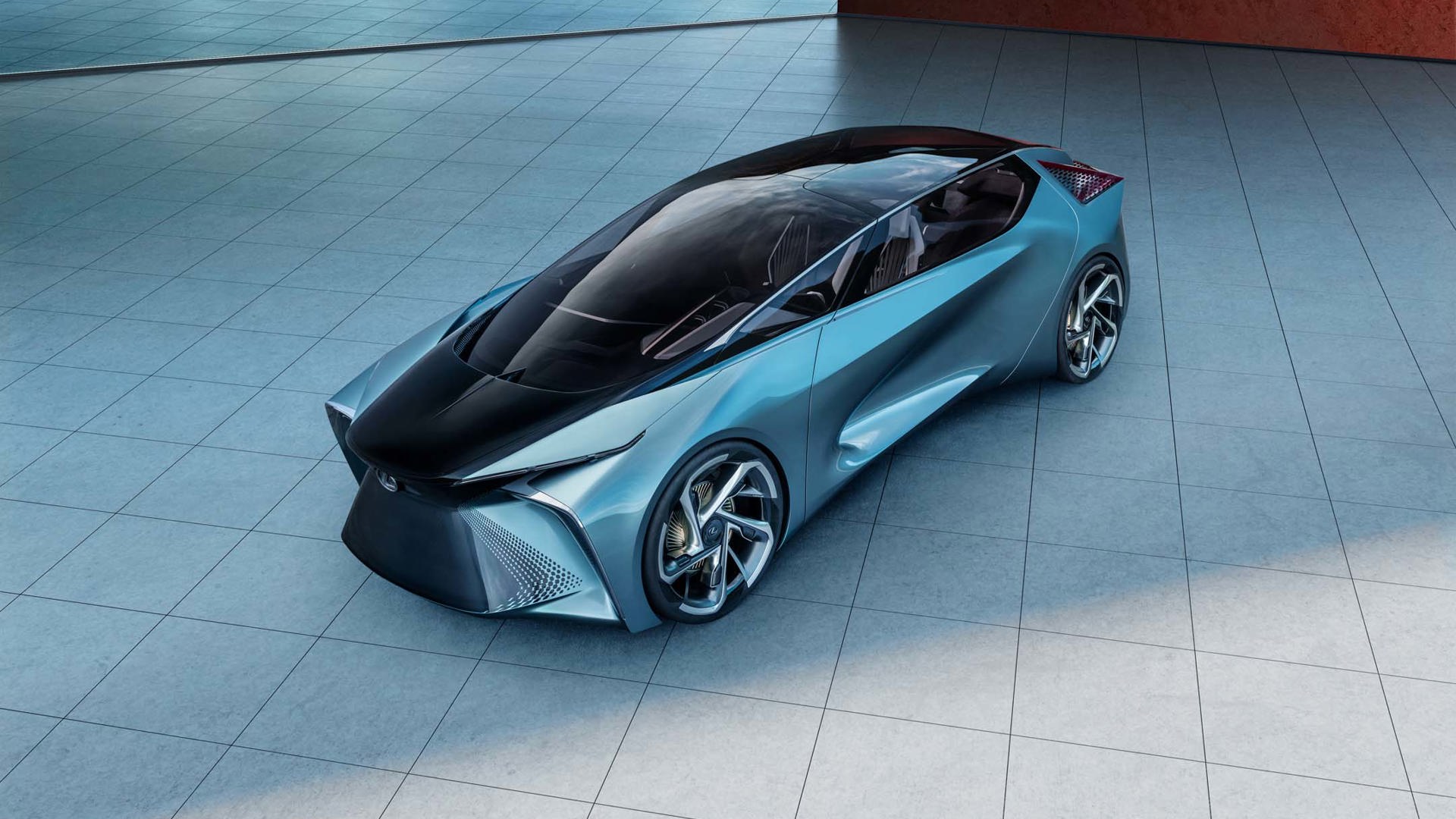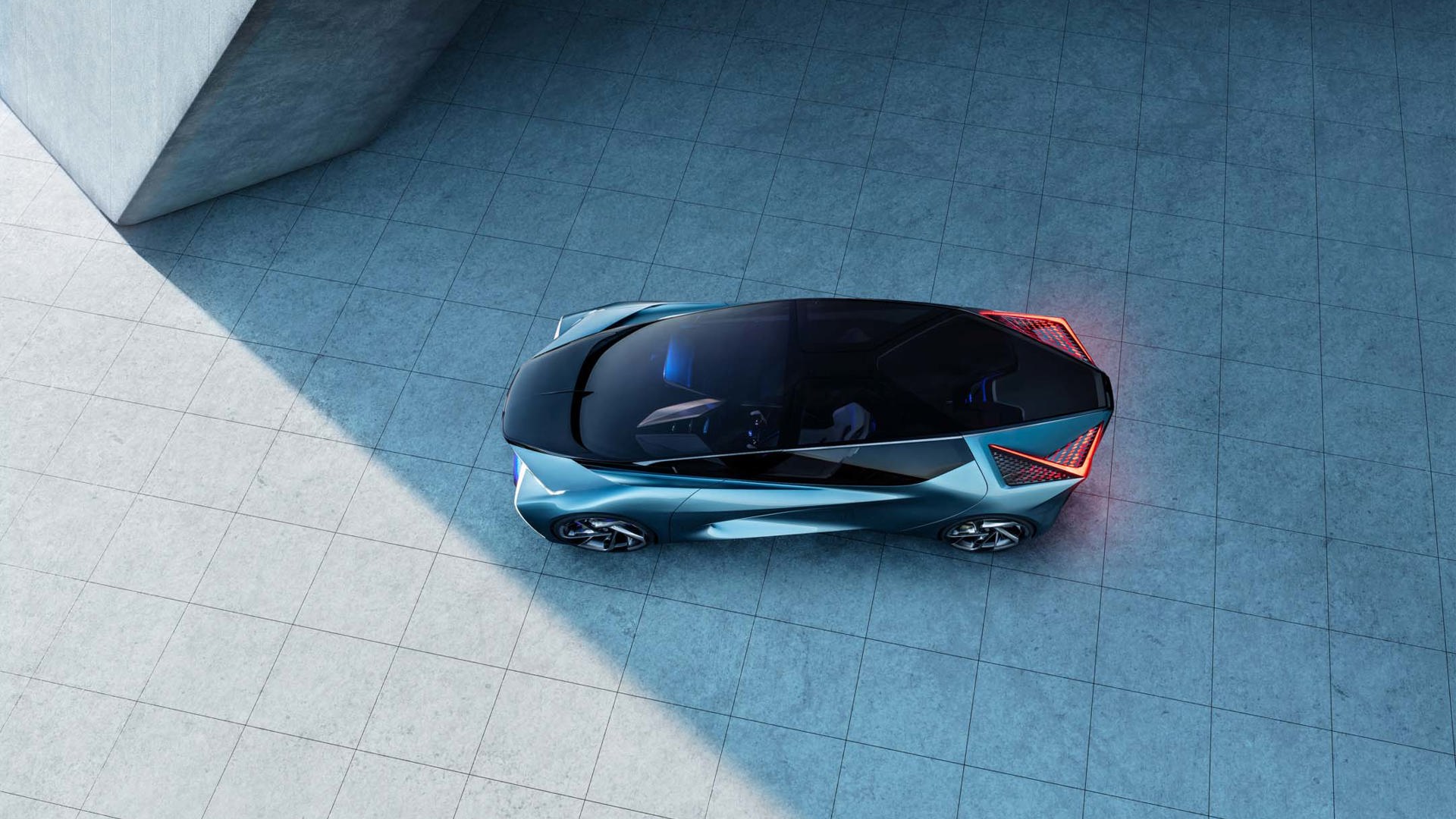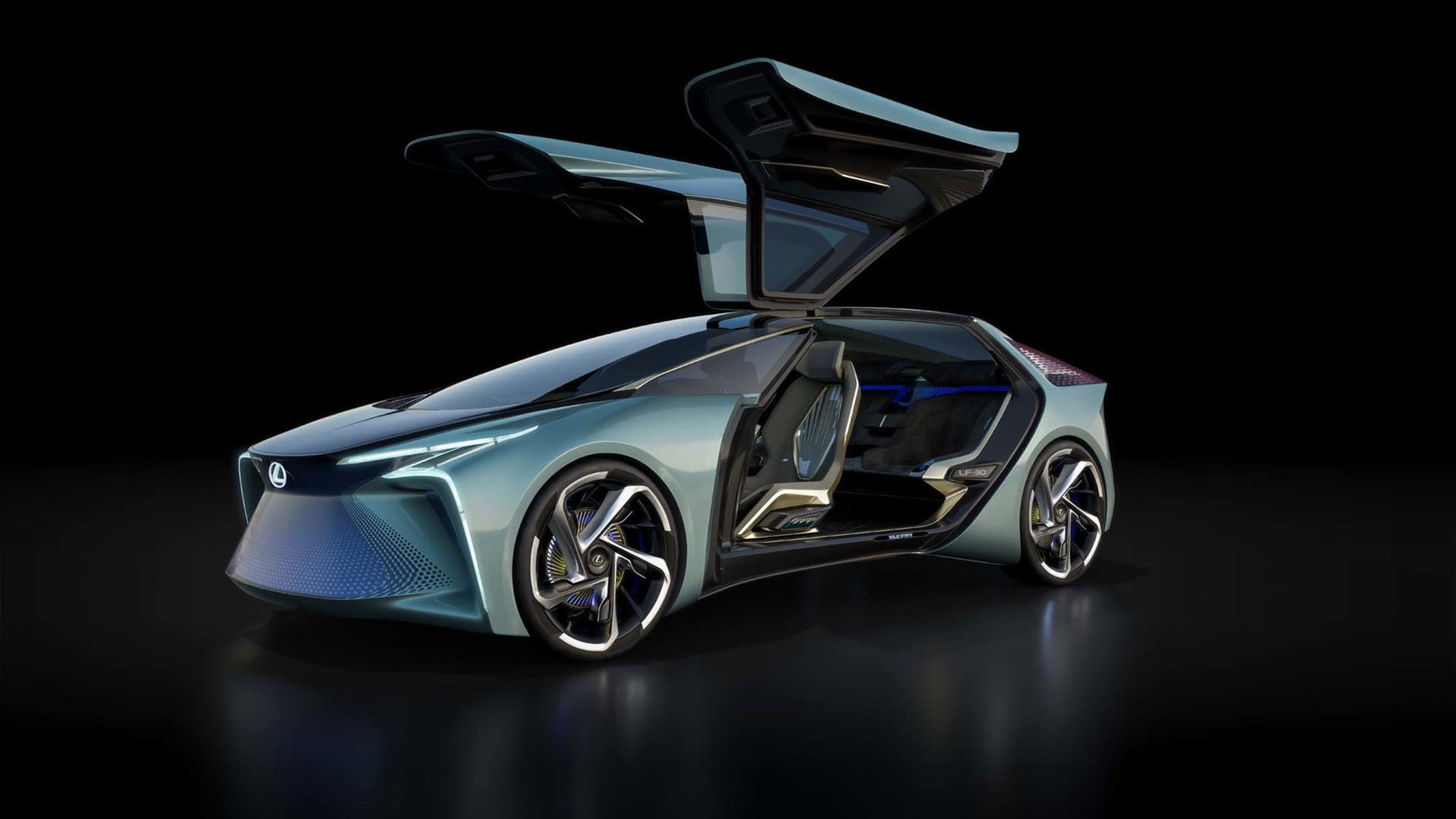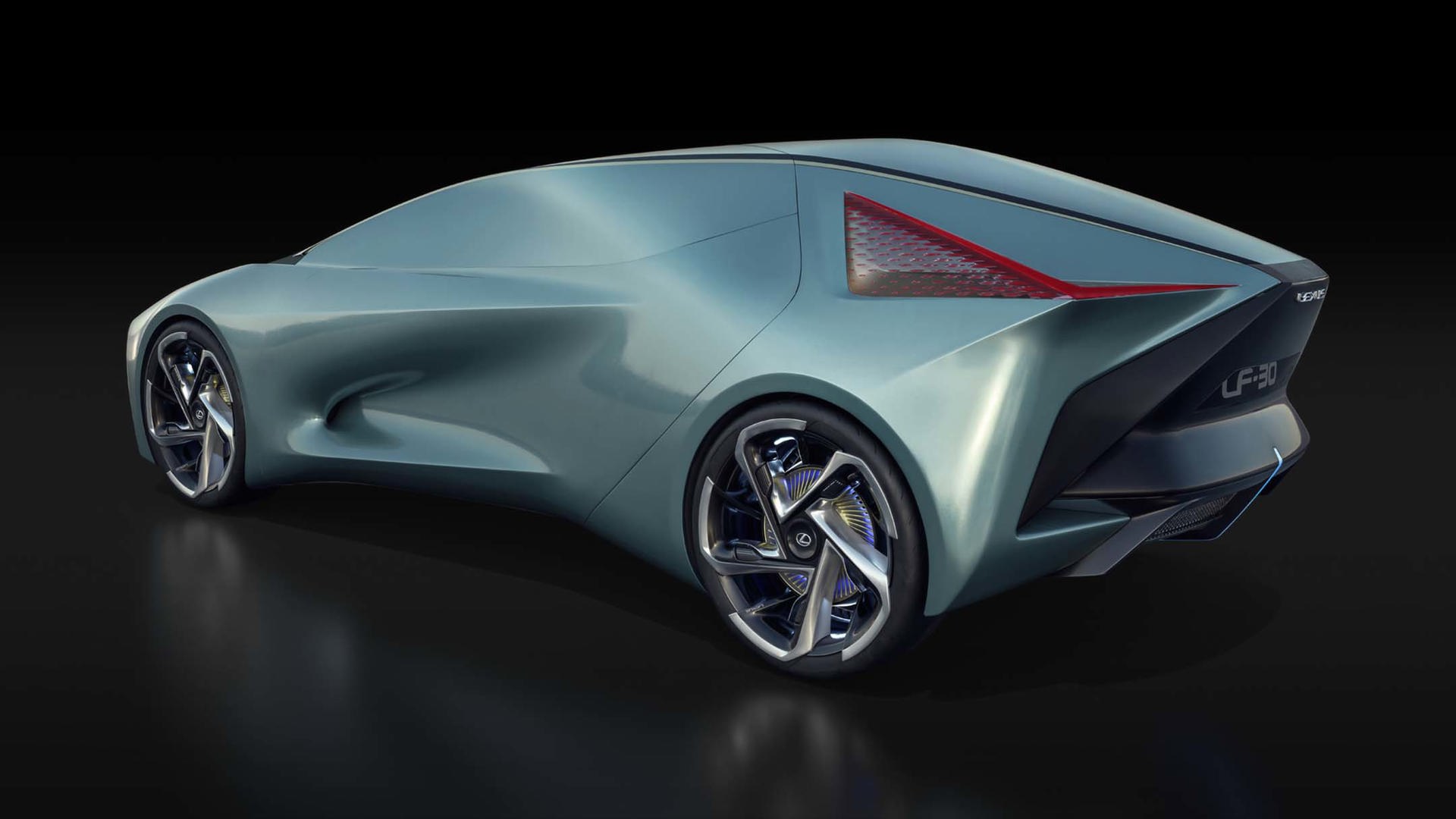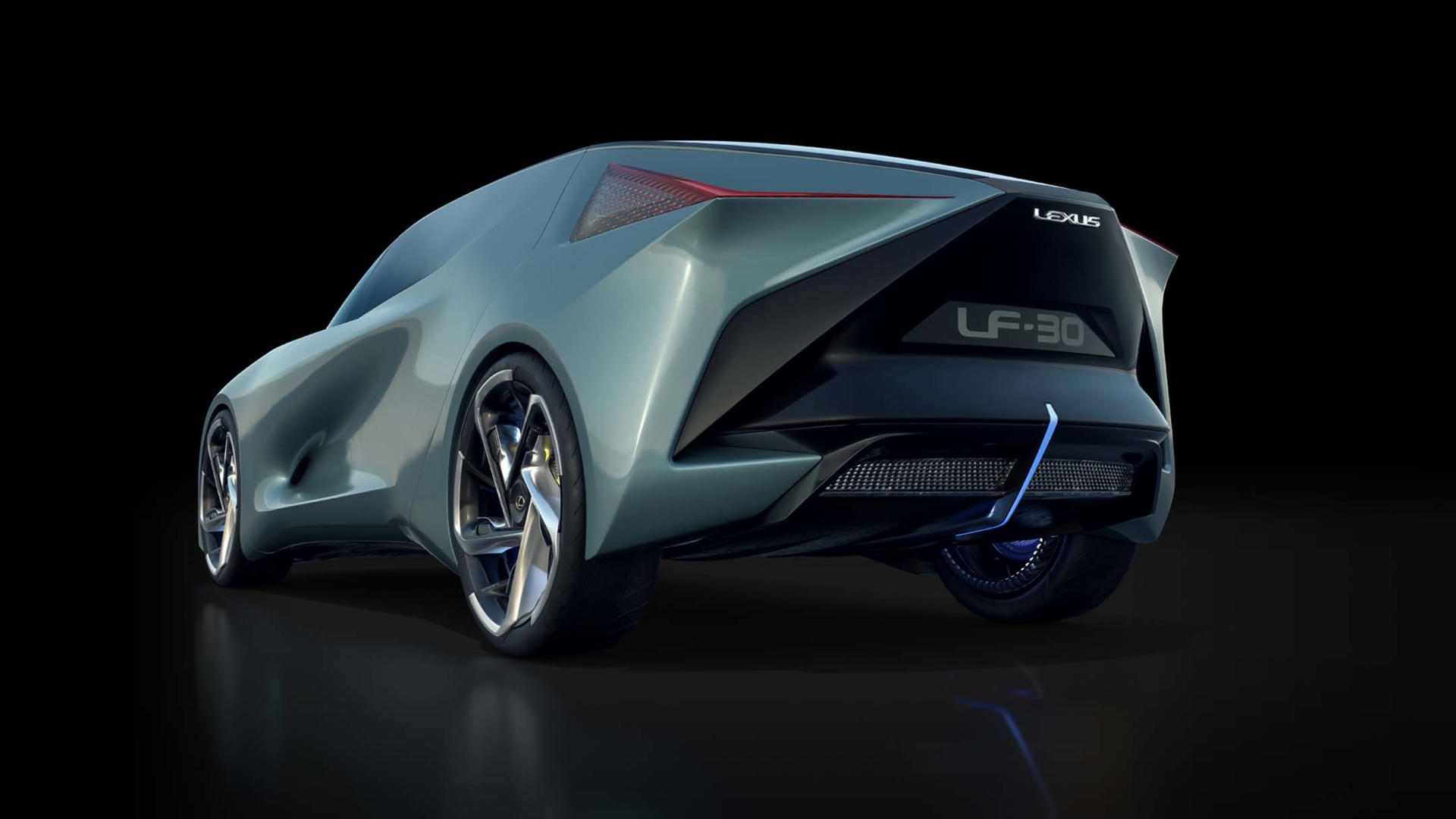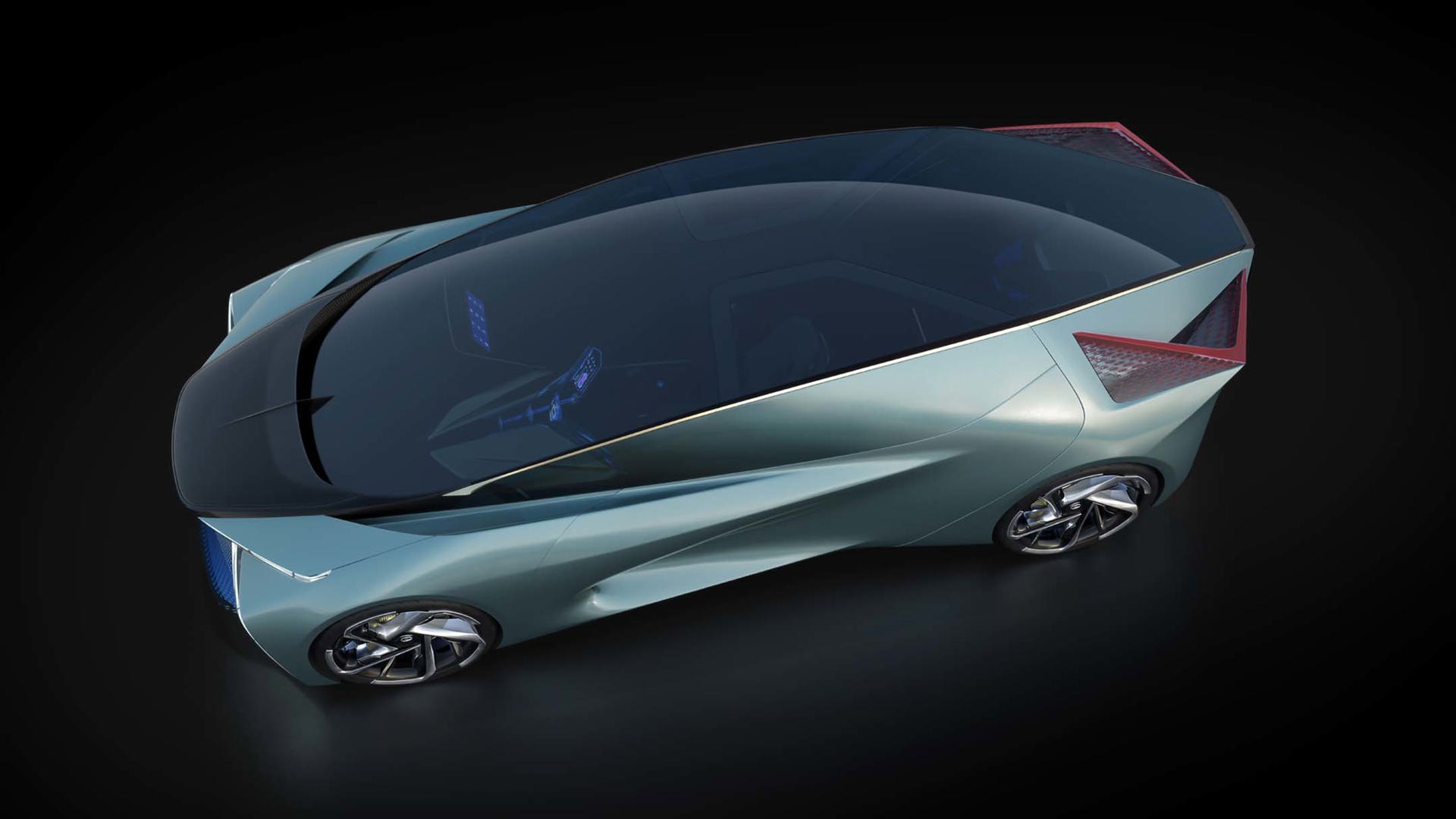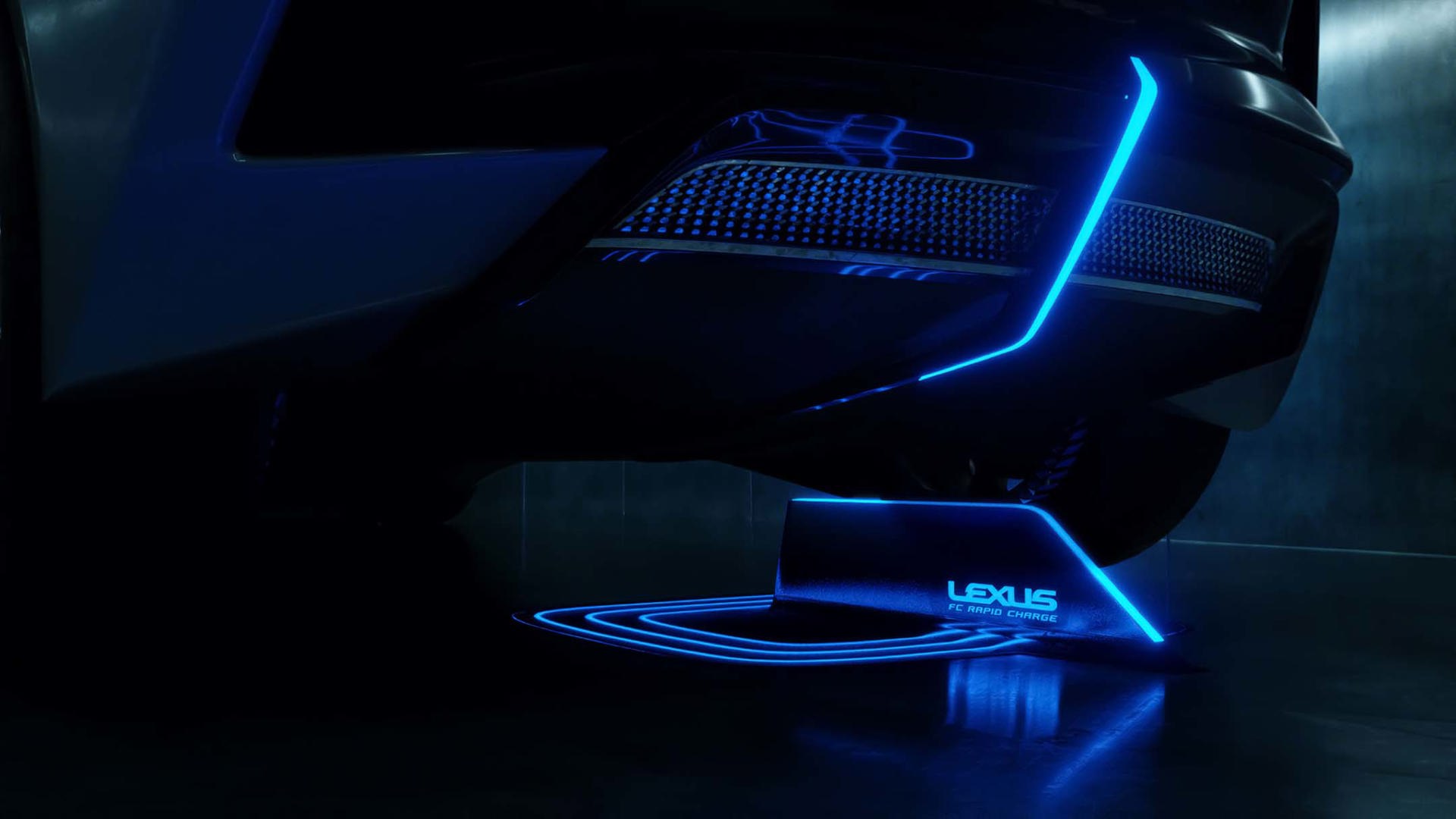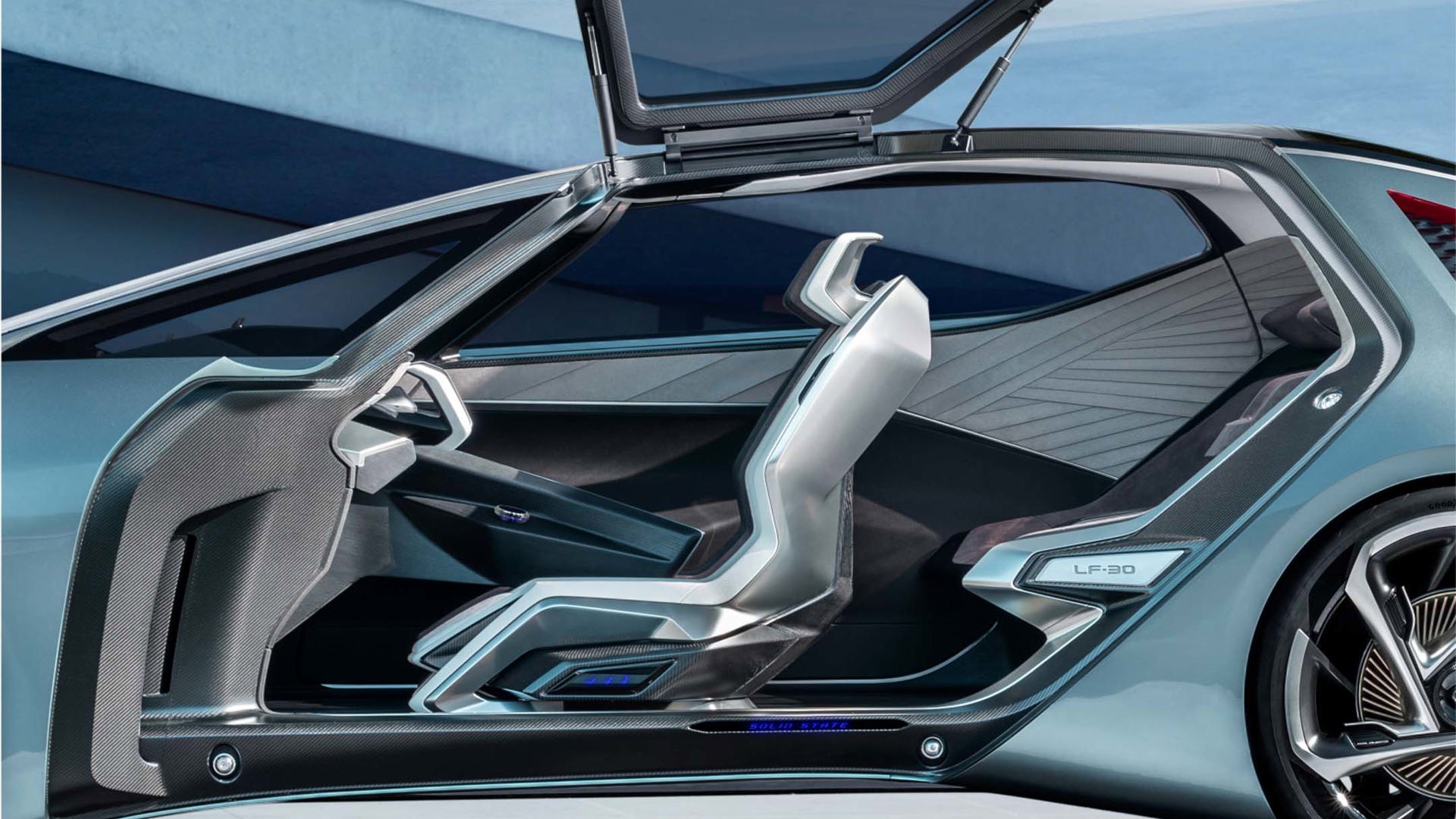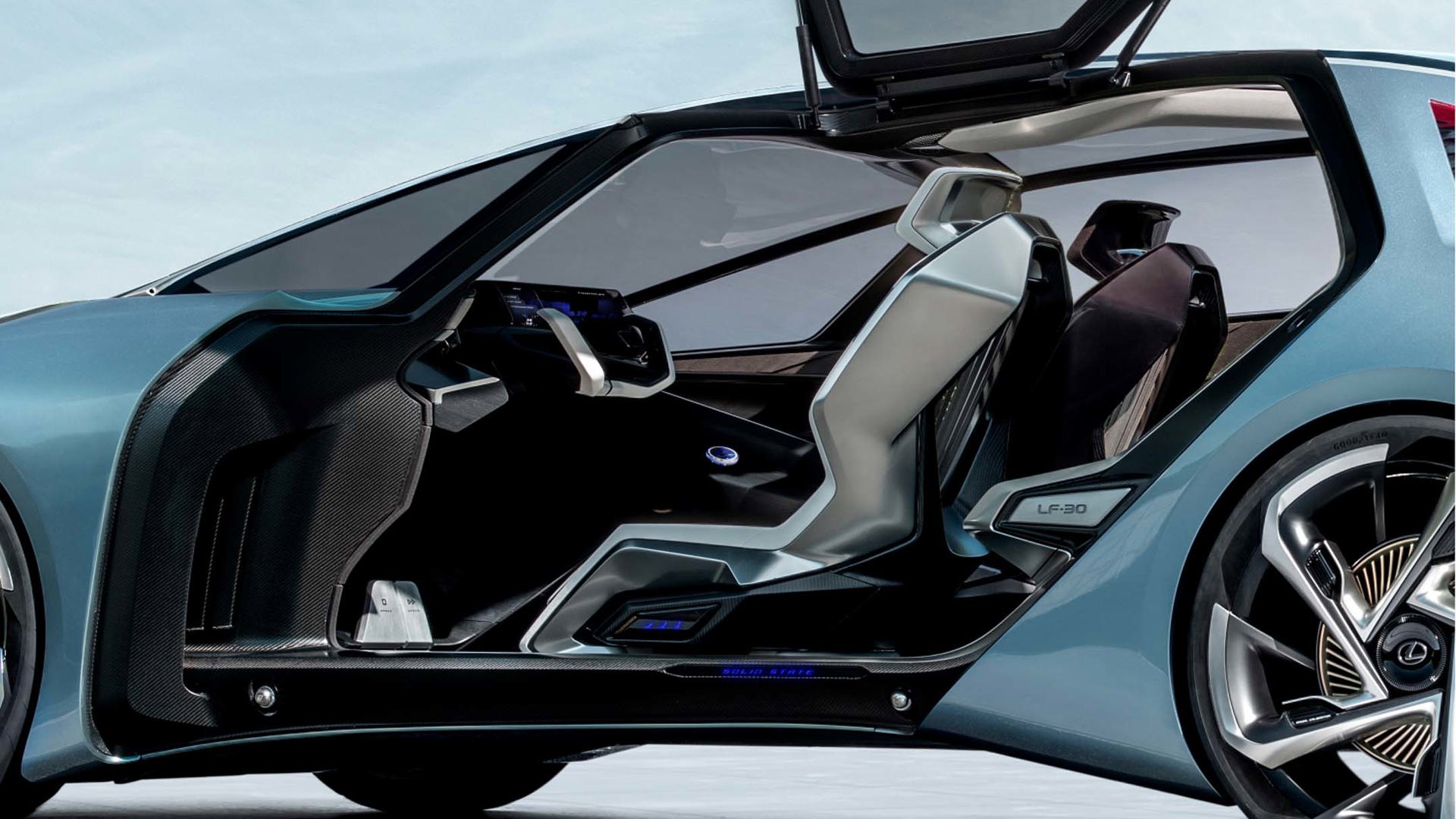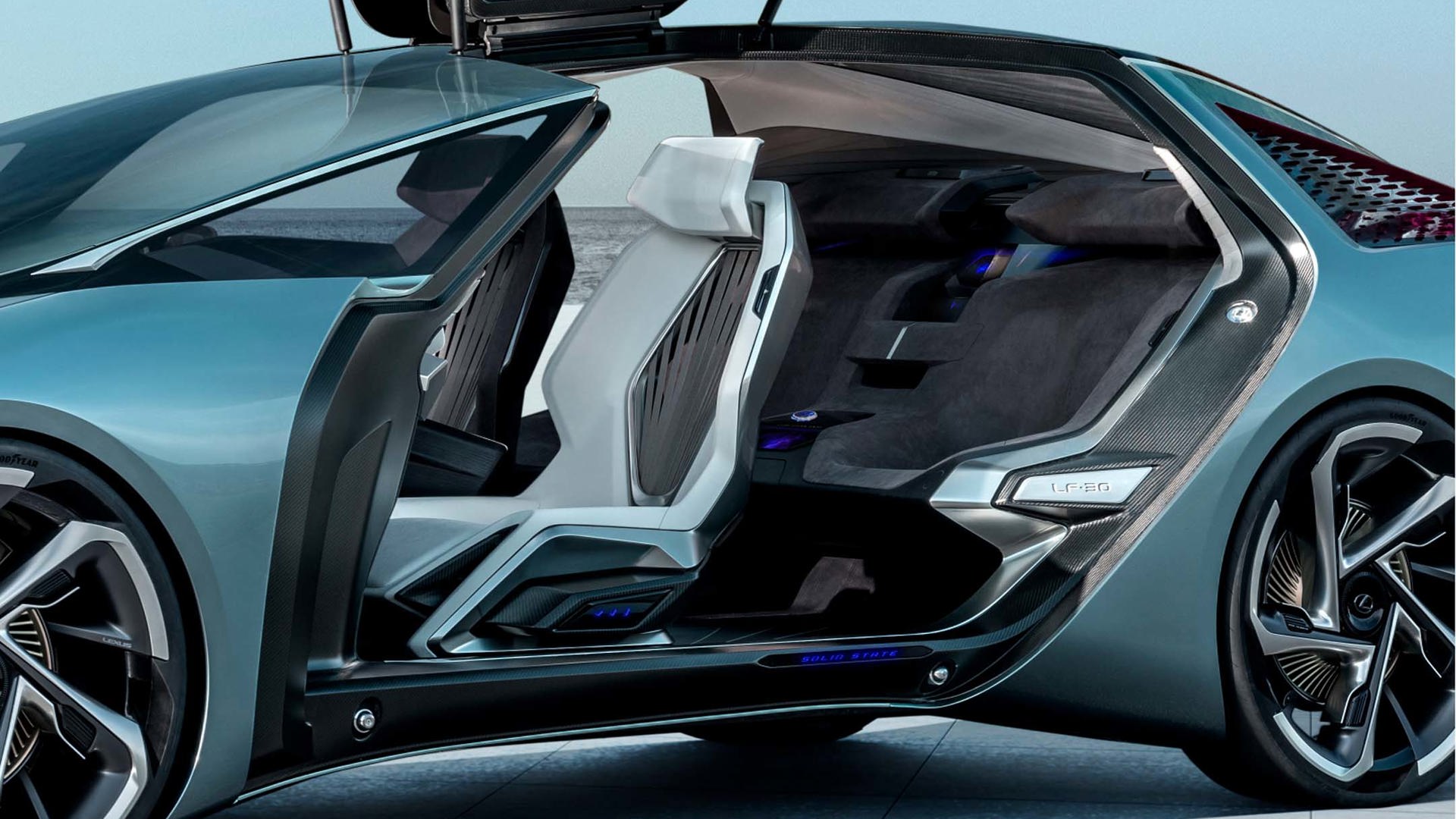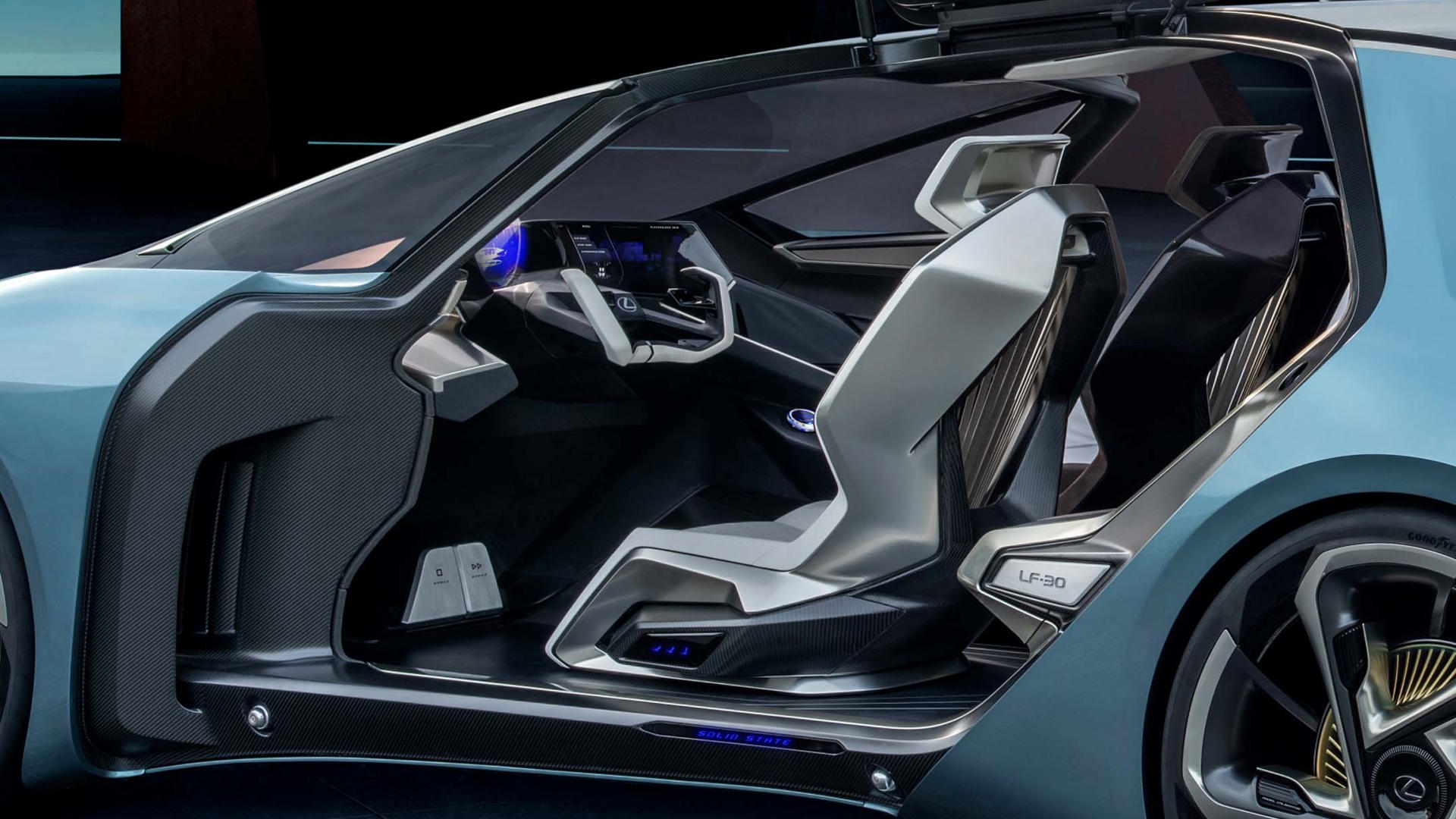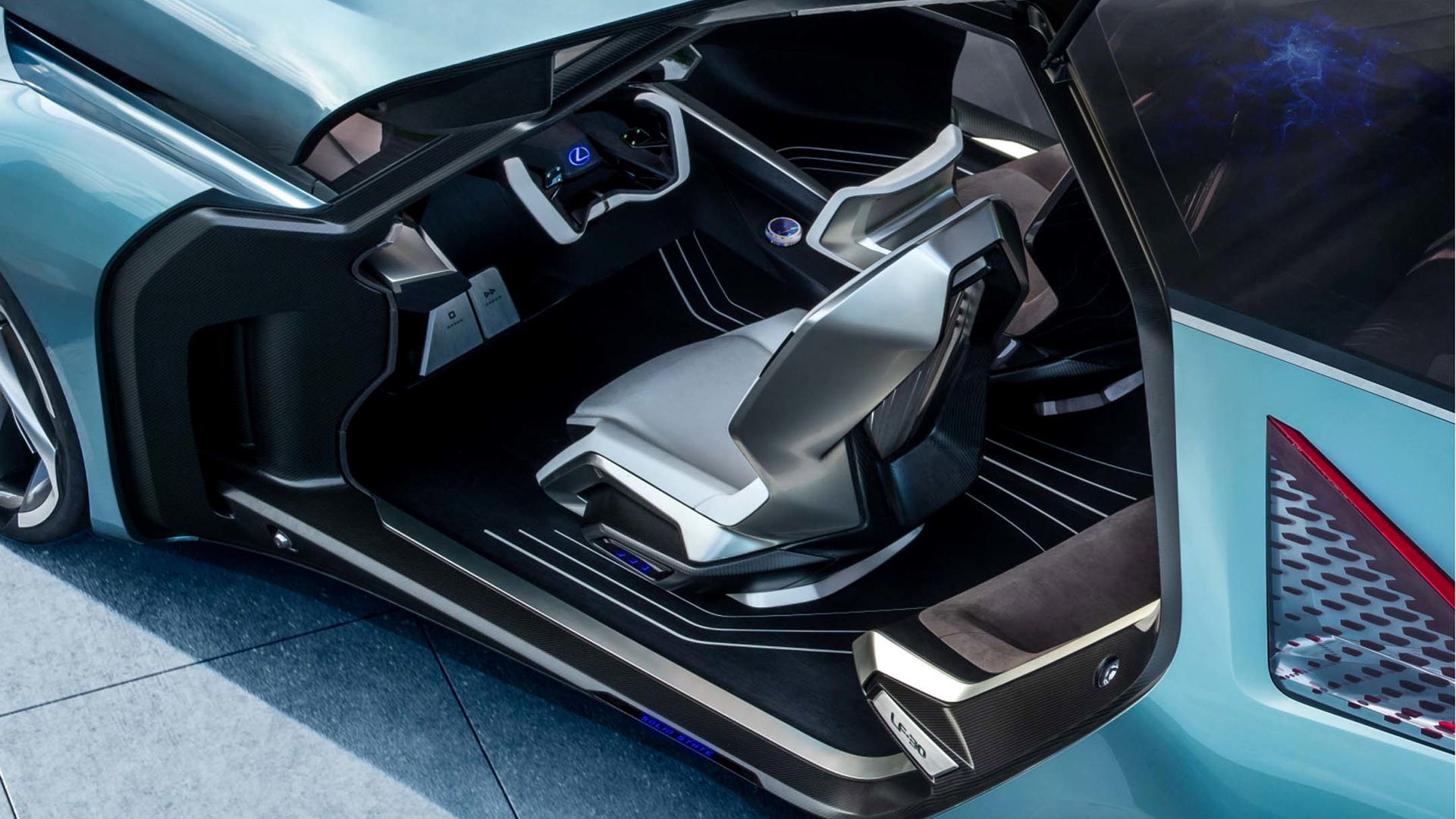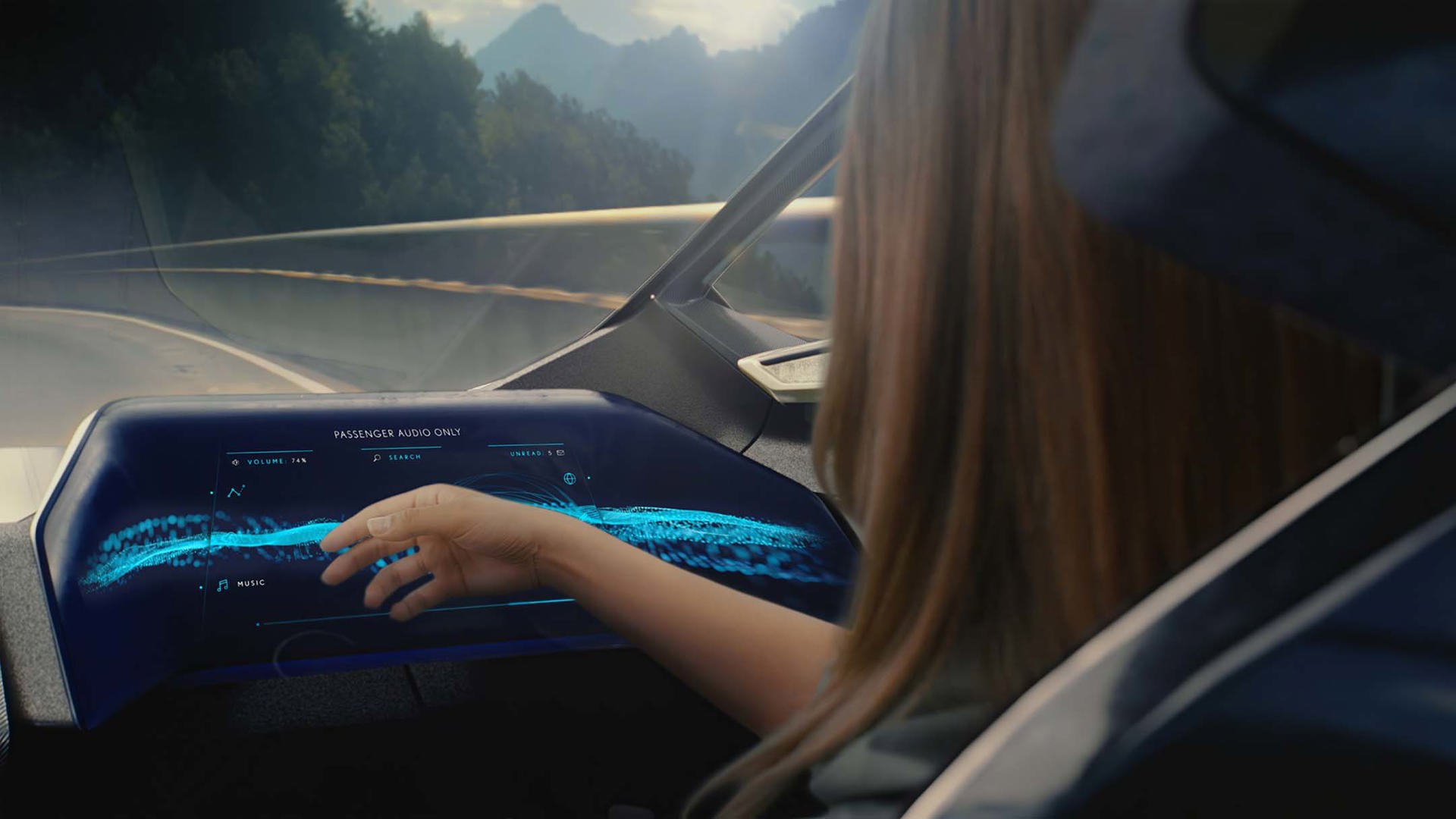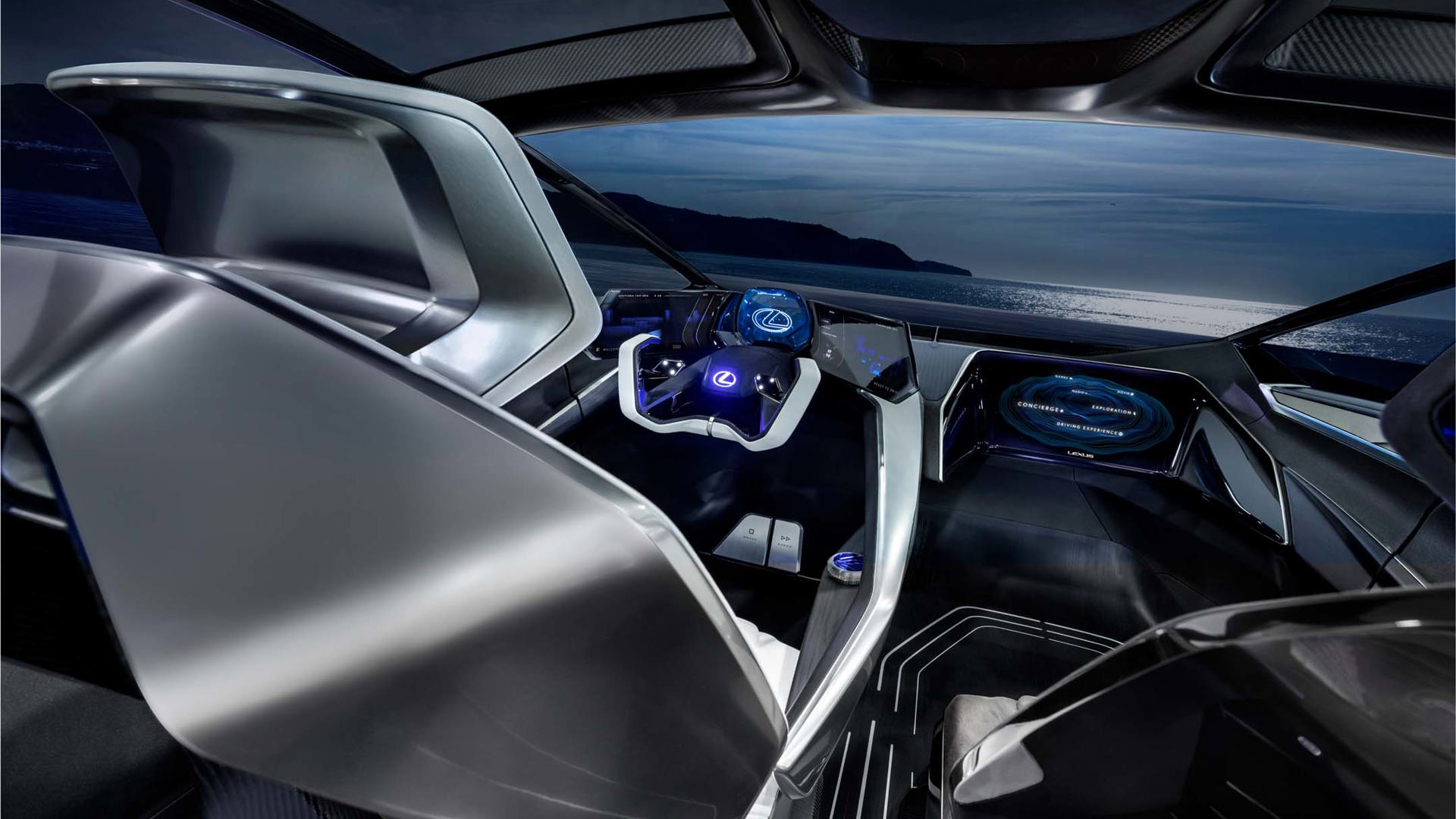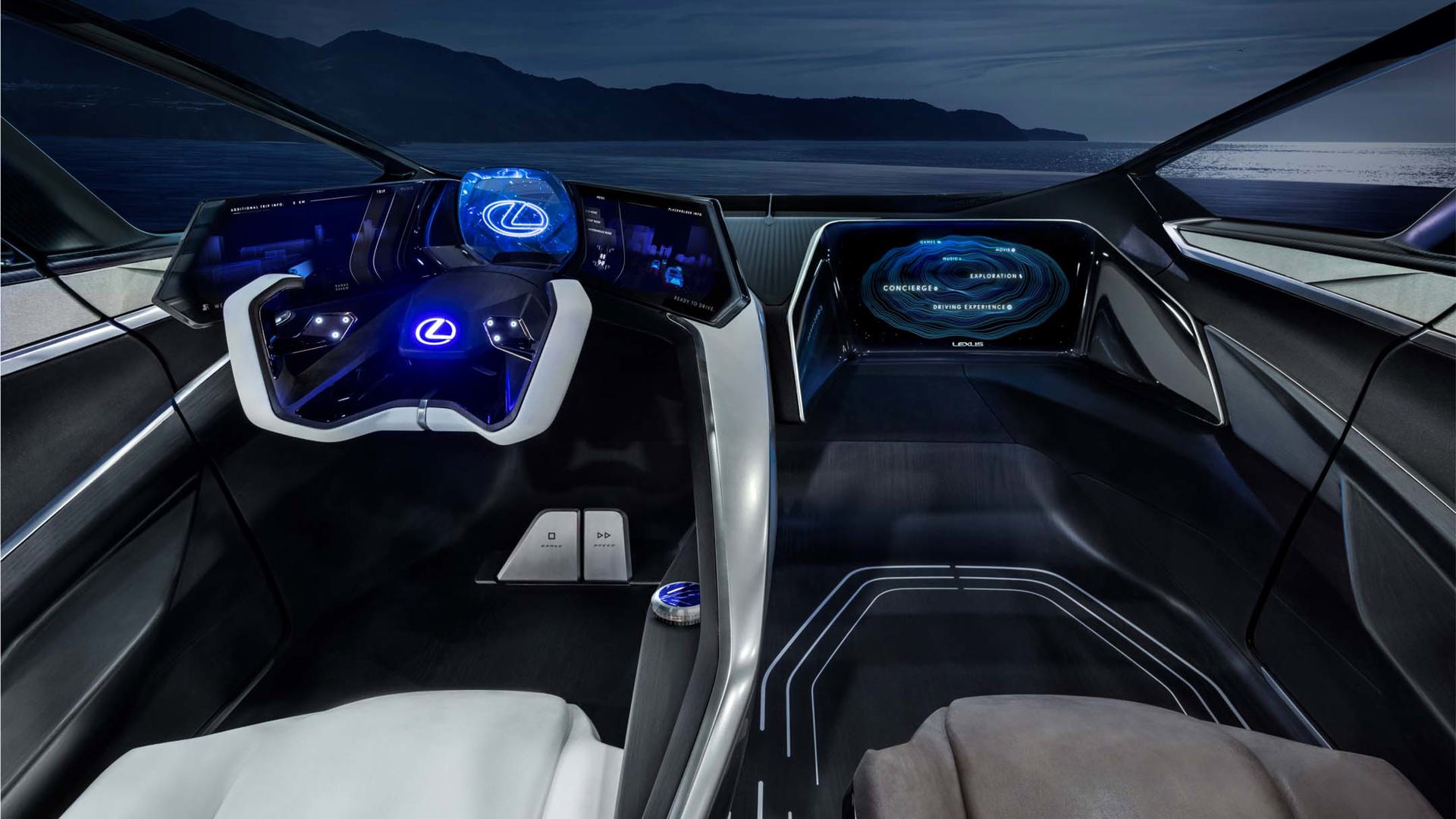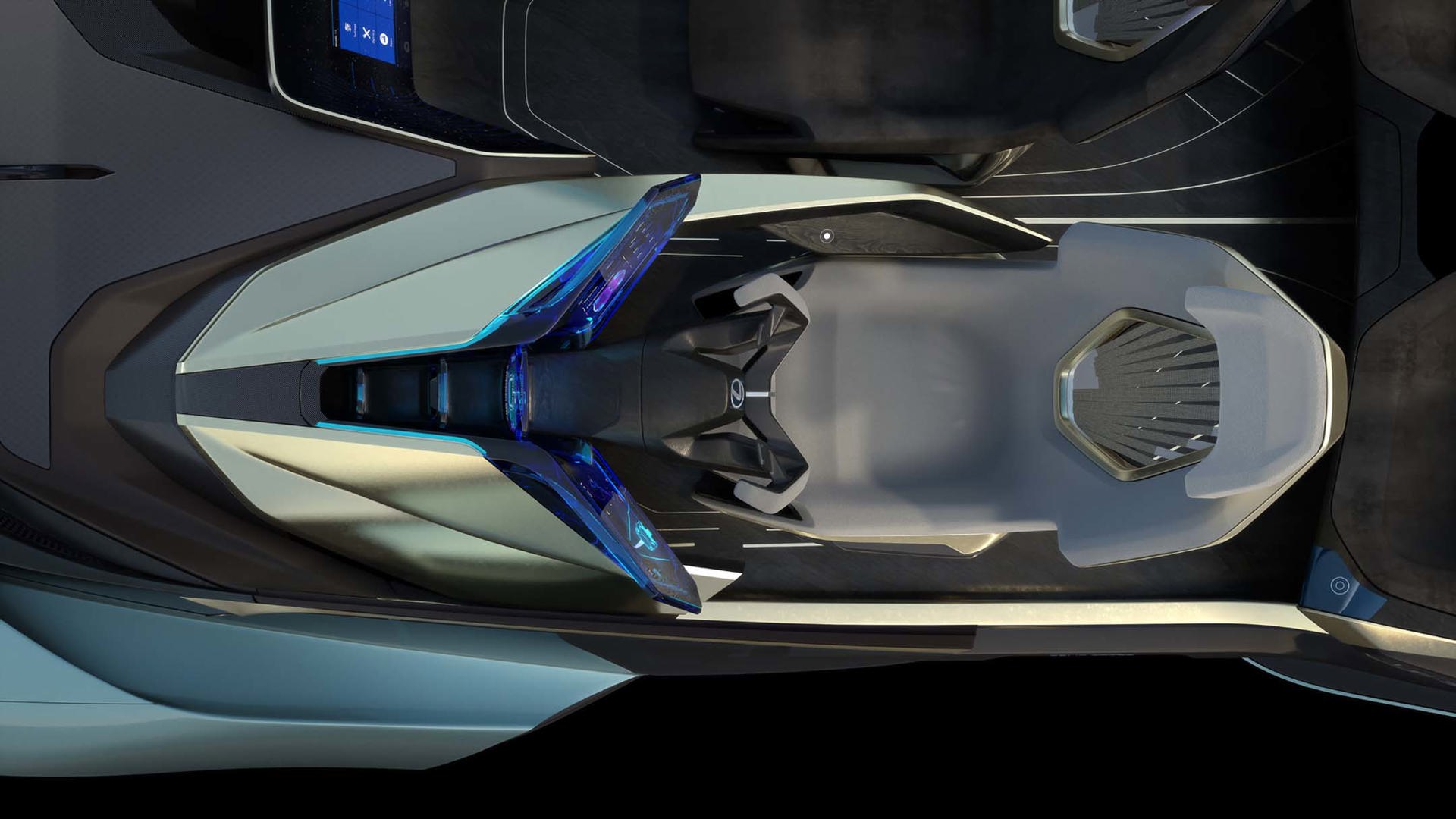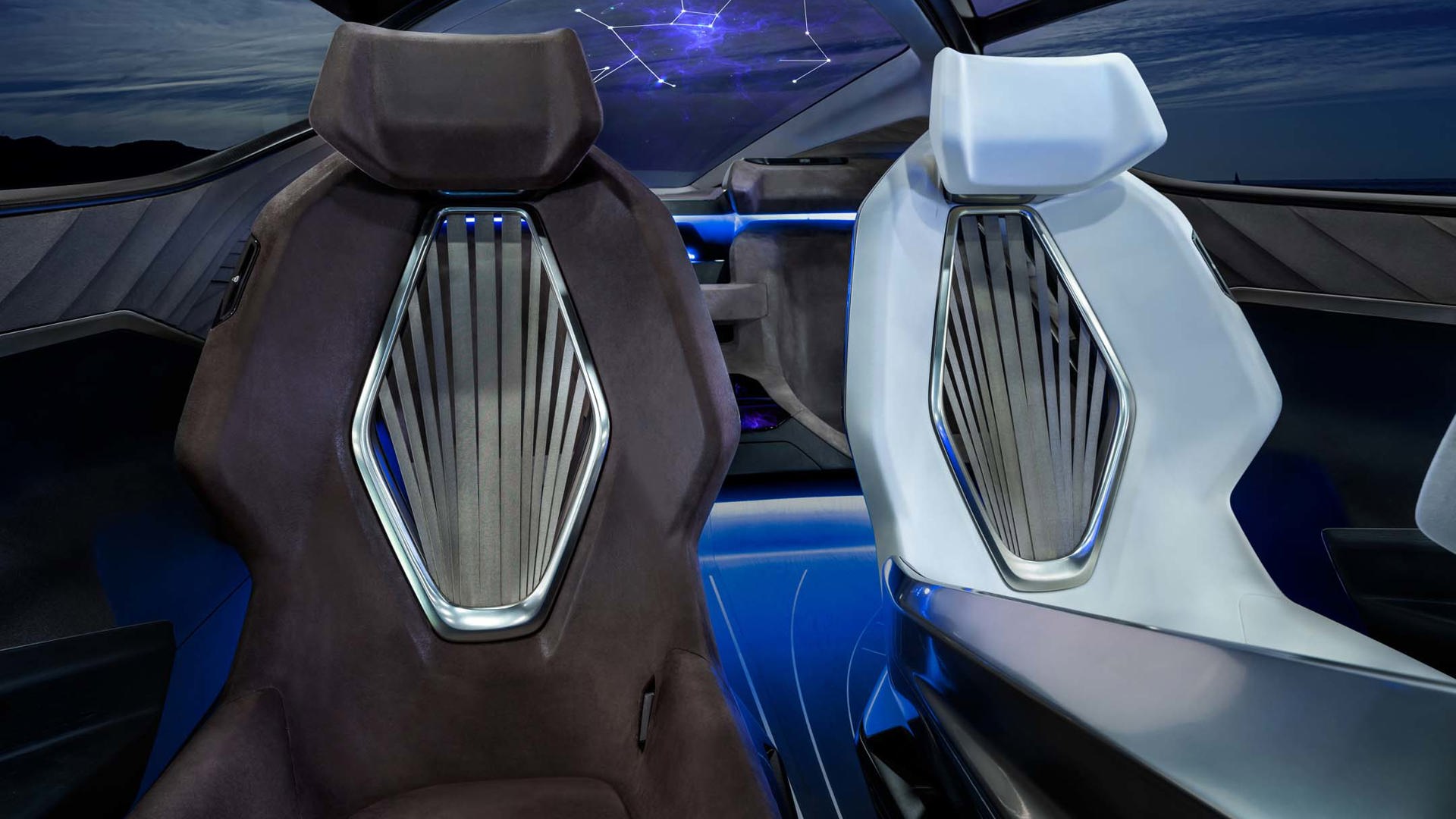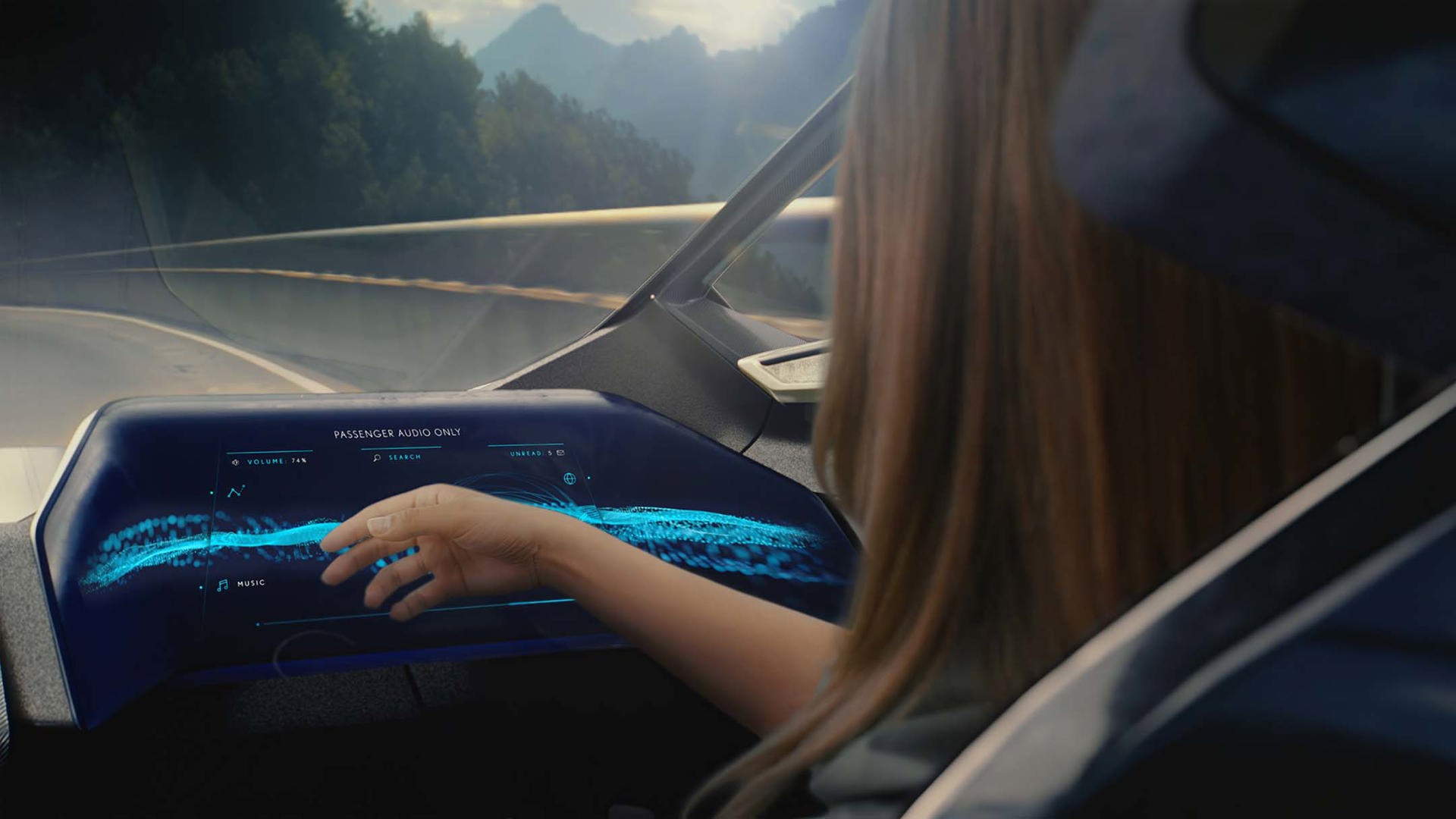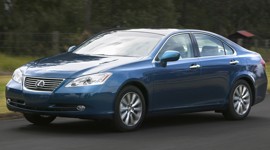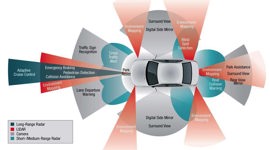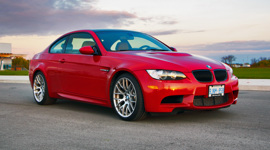Despite Lexus’ success with hybrids, its lineup has been lacking a fully electric vehicle. But that’s about to change with Lexus announcing its intention to bring a battery electric vehicle to market as soon as 2020.
To commemorate this announcement at the 2019 Tokyo Motor Show, the luxury brand is showing off the LF-30 Electrified Concept, its vision for Lexus-branded EVs. This futuristic concept isn’t a preview of next year’s production model, but rather a showcase of all the high-tech touches that will define the Lexus electric experience in the future.
The design is best described as extending the aesthetic of the brand’s signature spindle grille over an entire vehicle. It lacks a hood, has a long, wide glass greenhouse, has dramatic creases, and pushes its wheels out to the furthest corners of the vehicle. It’s truly a concept car, as proven by its dramatic door openings and missing mirrors. Colourful elements at the front of the vehicle can signal whether the vehicle is operating in autonomous mode or being manually piloted.
Inside, everything is as futuristic as it looks. The windows feature augmented reality displays, and passengers can vary the opacity of the glass as well. The steering wheel’s design is inspired by a horse’s reins, with many controls and switches integrated into the wheel. Fortunately, the future of Lexus infotainment no longer includes its Remote Touch interface, with the LF-30 using gesture controls instead.
The seats and materials in the LF-30 are crafted with sustainability in mind. The floor and steering controller is designed with a unique charred cedar material, while recycled metal is used in the pleated door trim. Perhaps we can expect these special designs in the brand’s future, as the automaker has been delivering dramatic interiors of late.
The LF-30 uses an electric motor for each wheel with an estimated total output of 536 horsepower and 516 lb-ft of torque. That means it’ll sprint to 100 km/h in 3.8 seconds and feature a top speed of 200 km/h. Thanks to its 110 kWh battery, the vehicle should manage a range of 500 km. The LF-30 also uses wireless charging so there’s no need to fuss with a charging plug.
To enable its self-driving capabilities, the LF-30 uses a steer-by-wire system, meaning there is no mechanical connection between the steering wheel and front wheels. As a result, the steering wheel can be simply pushed away when the vehicle is operating in its autonomous mode. Dubbed Lexus Teammate, the vehicle features a “chauffeur mode” and a “guardian mode.” It can park itself and can pick you up from your front door as well. Lexus also includes a little drone to help with carrying groceries and cargo.
However, Lexus emphasizes its future will still feature fun-to-drive vehicles. The LF-30 uses Advanced Posture Control, a suite of systems that enable a more engaging feel with the vehicle. Advanced Posture Control measures the steering and throttle input and manages the power delivery between the front and rear axles, as well as the suspension, for better responsiveness. The vehicle creates a profile for each driver, allowing the driving experience to be tailored to whomever is piloting the vehicle.
The Tokyo Motor Show is an opportunity for Japanese automakers to showcase their best and brightest ideas, and it’s clear that Lexus is investing heavily in battery electric vehicles. The automaker says it will launch its own PHEV and dedicated electric vehicle platforms in the early part of the next decade, and that by 2025 there will be an electrified variant of every Lexus vehicle.
